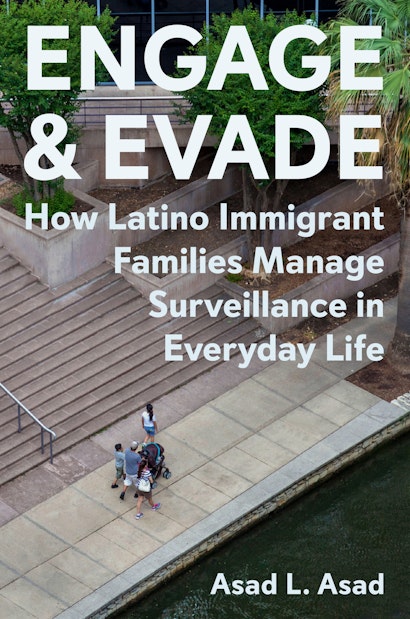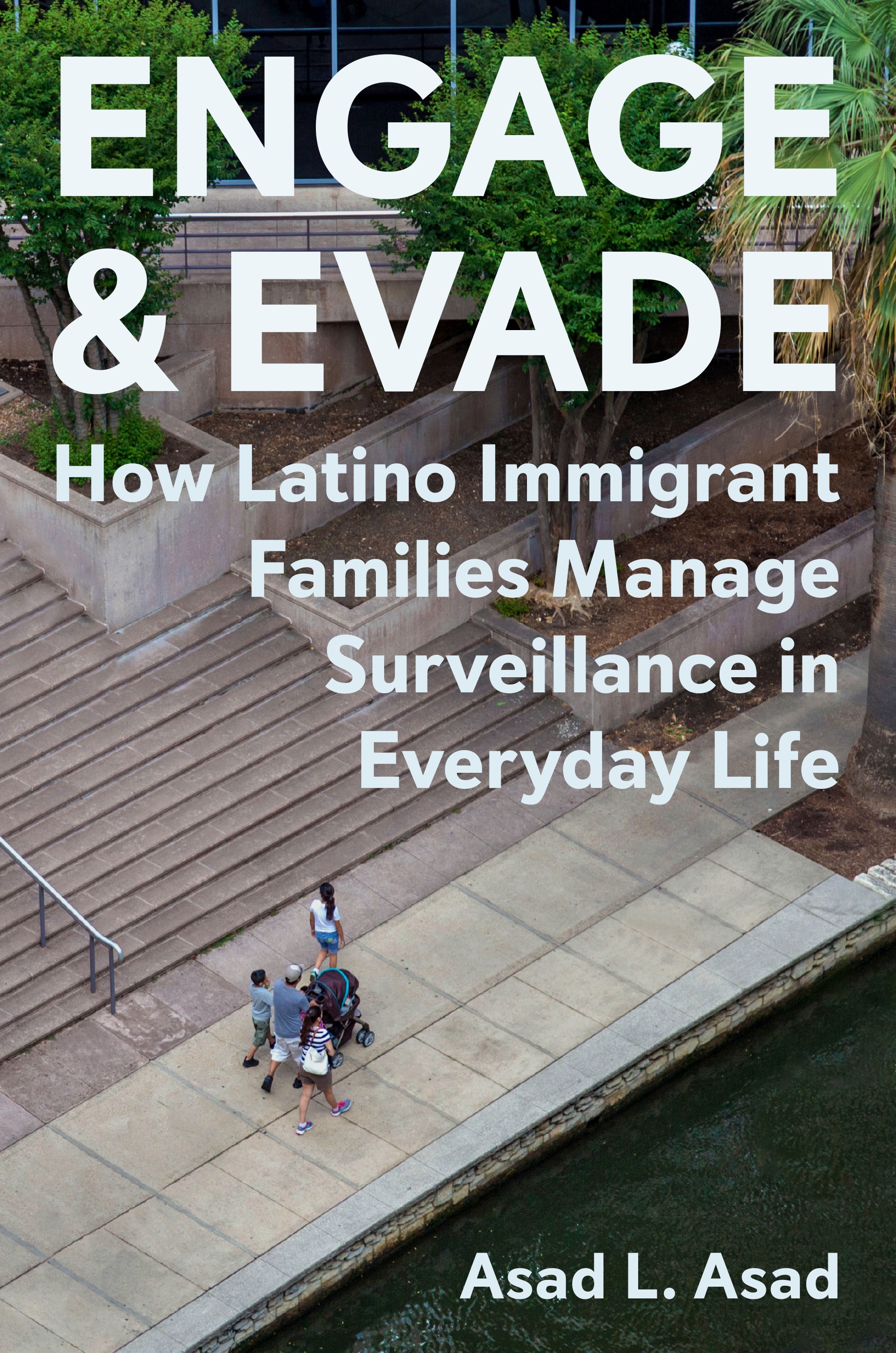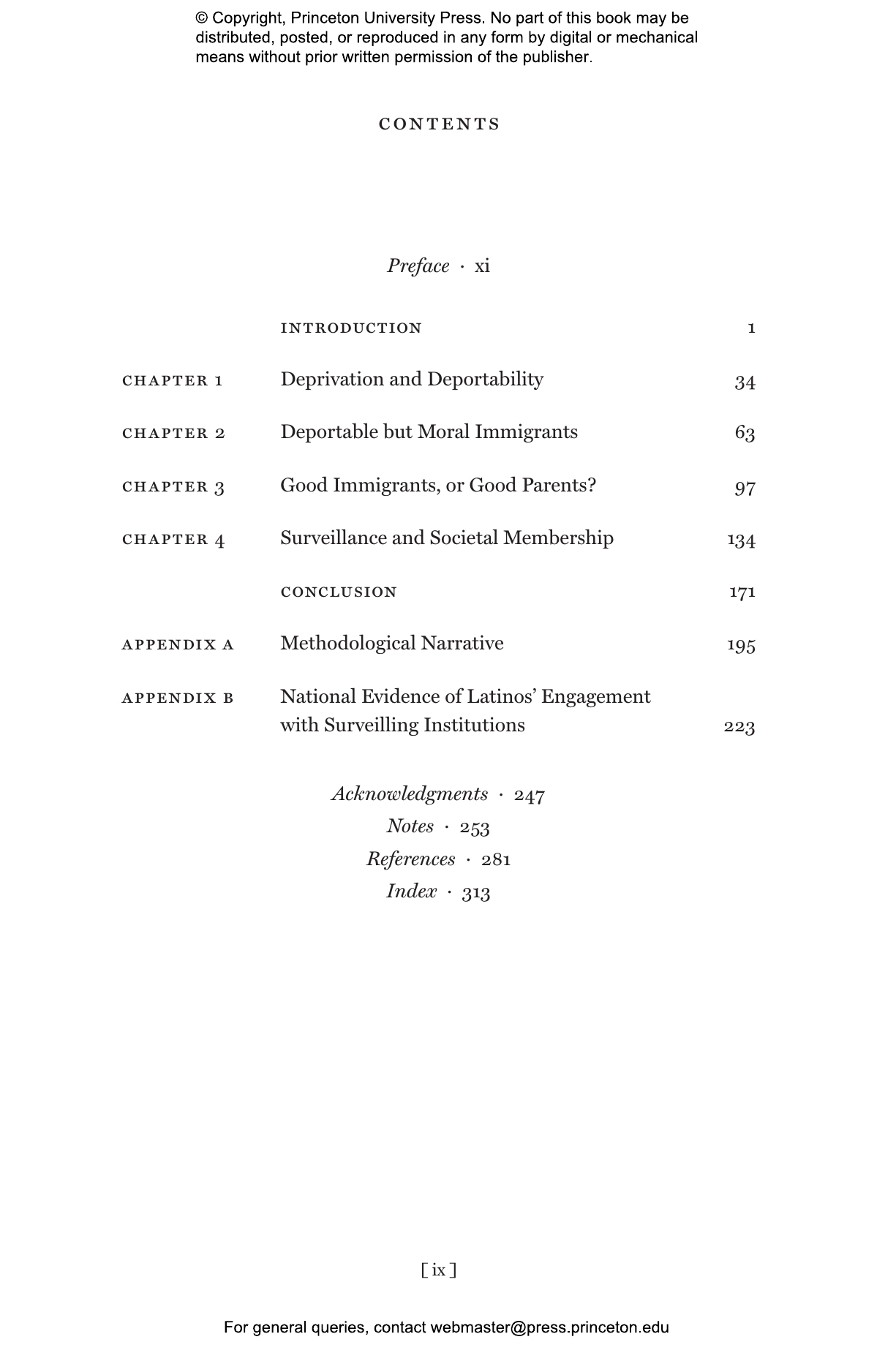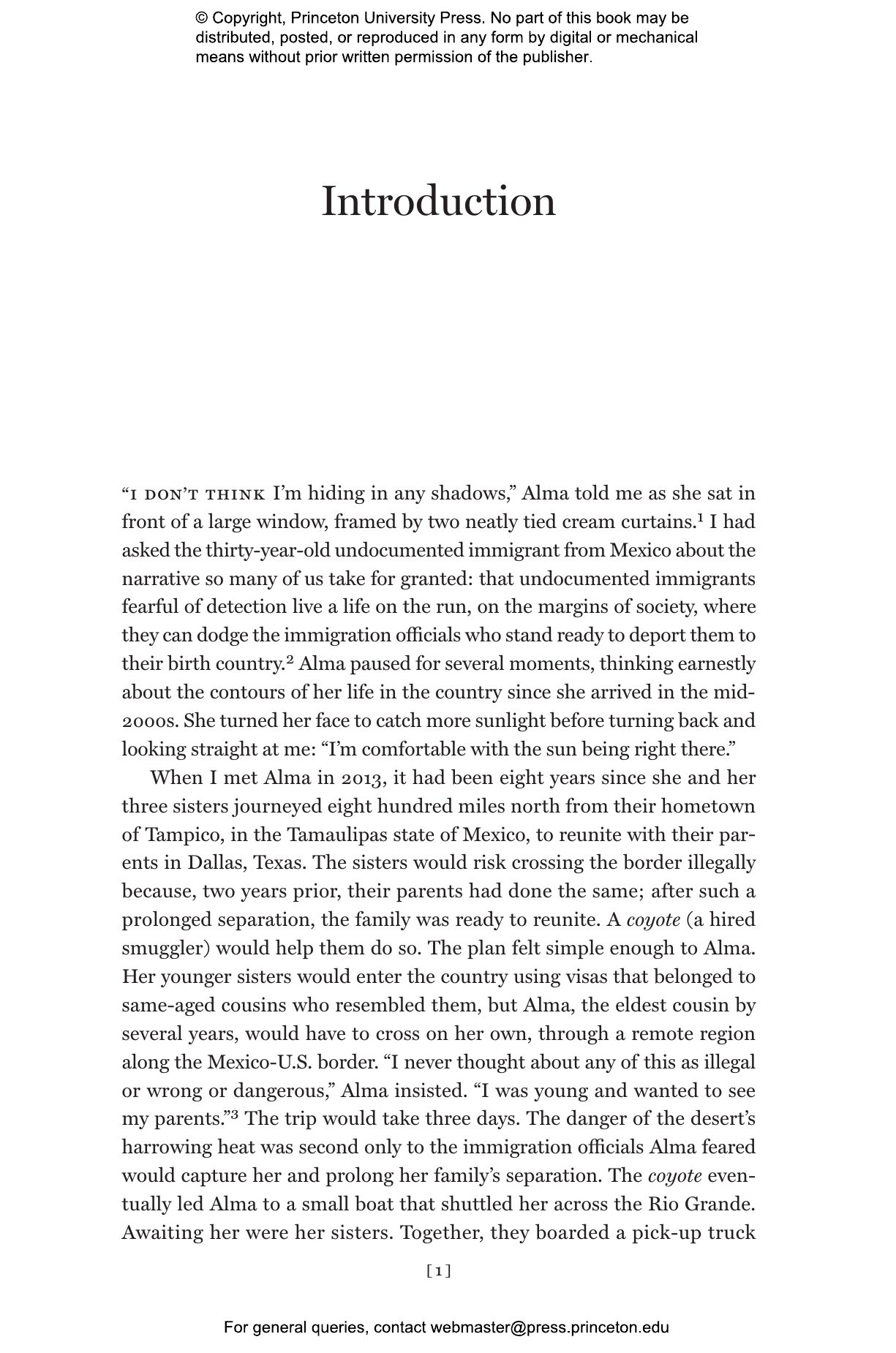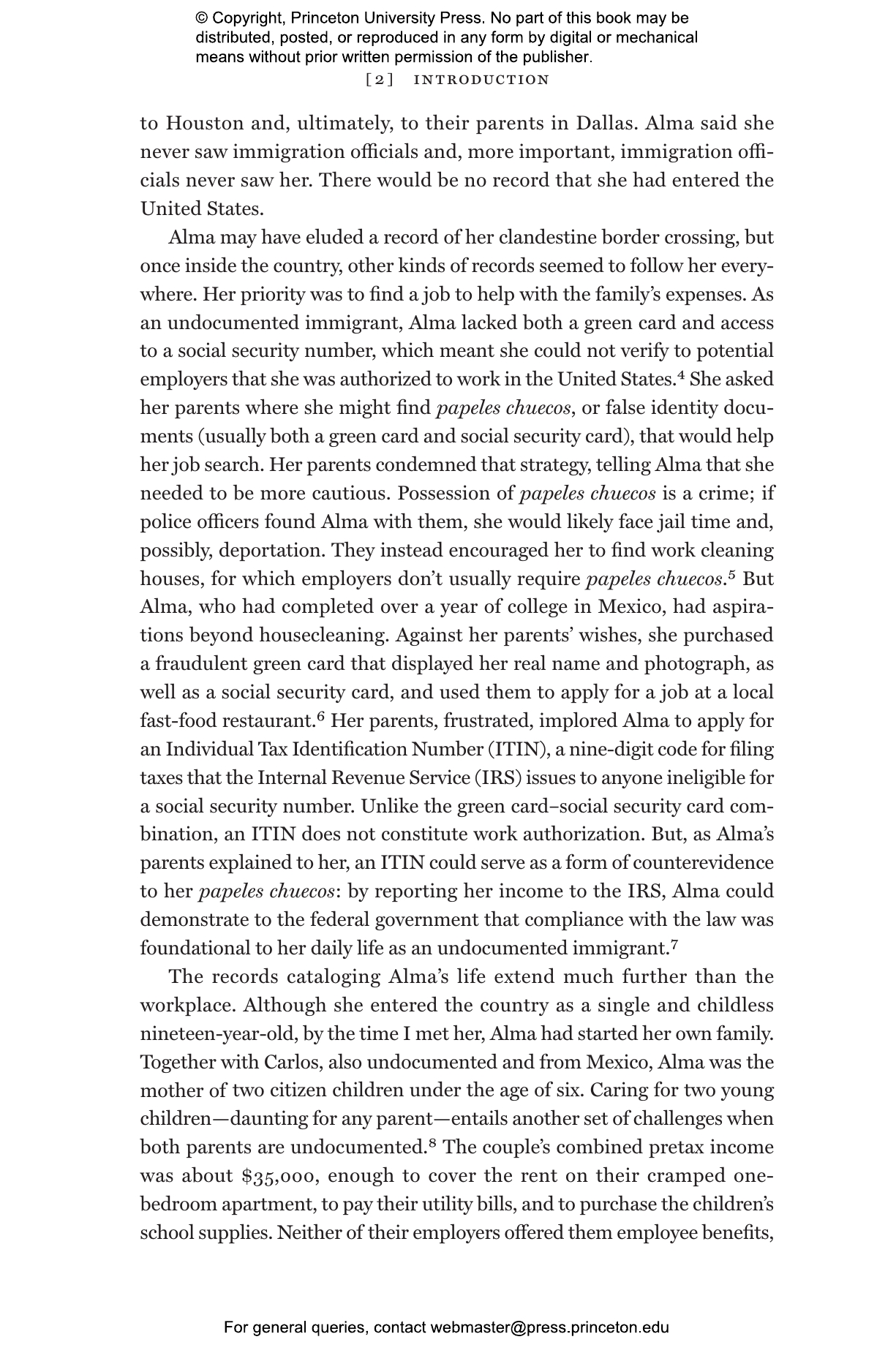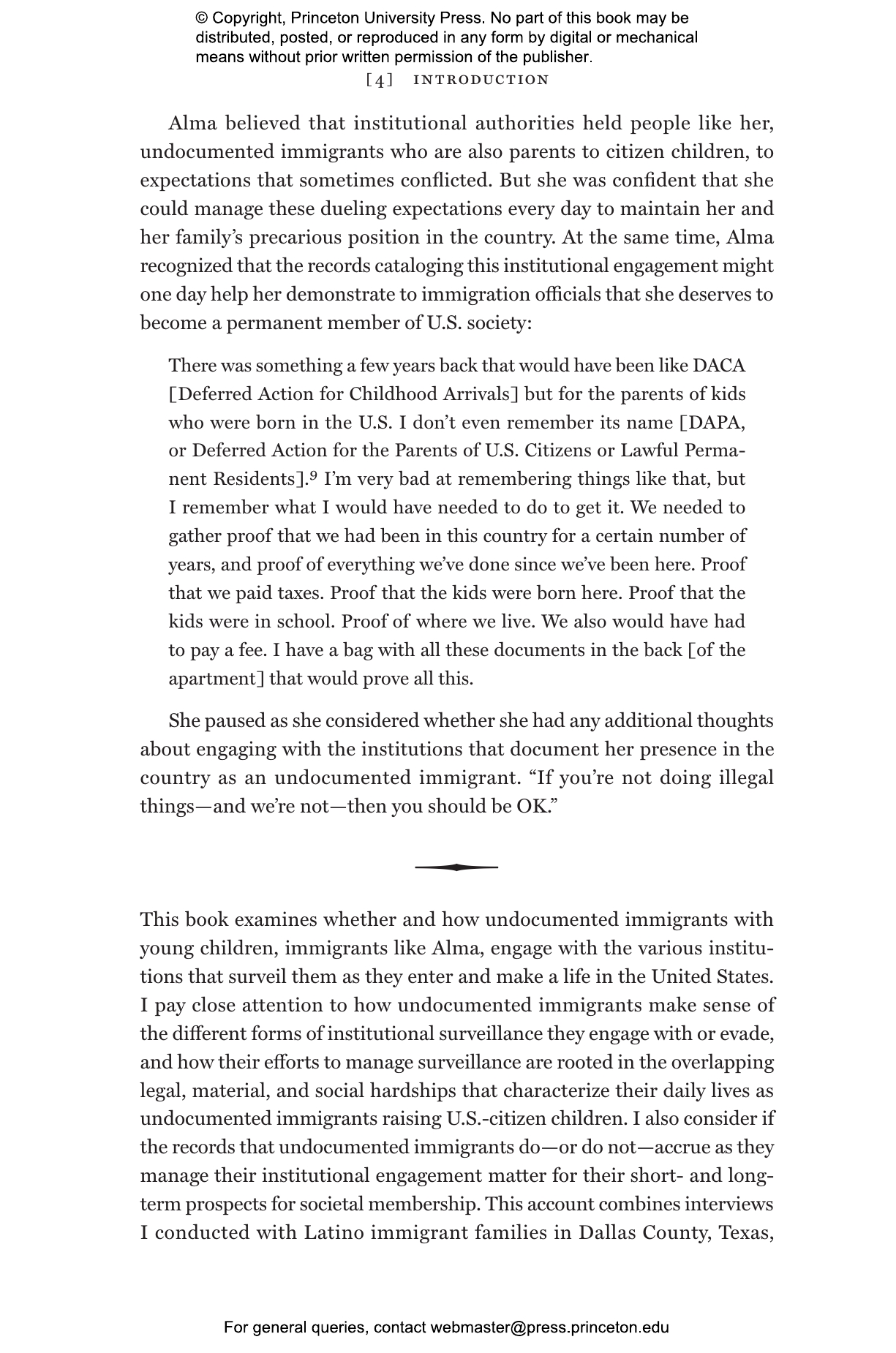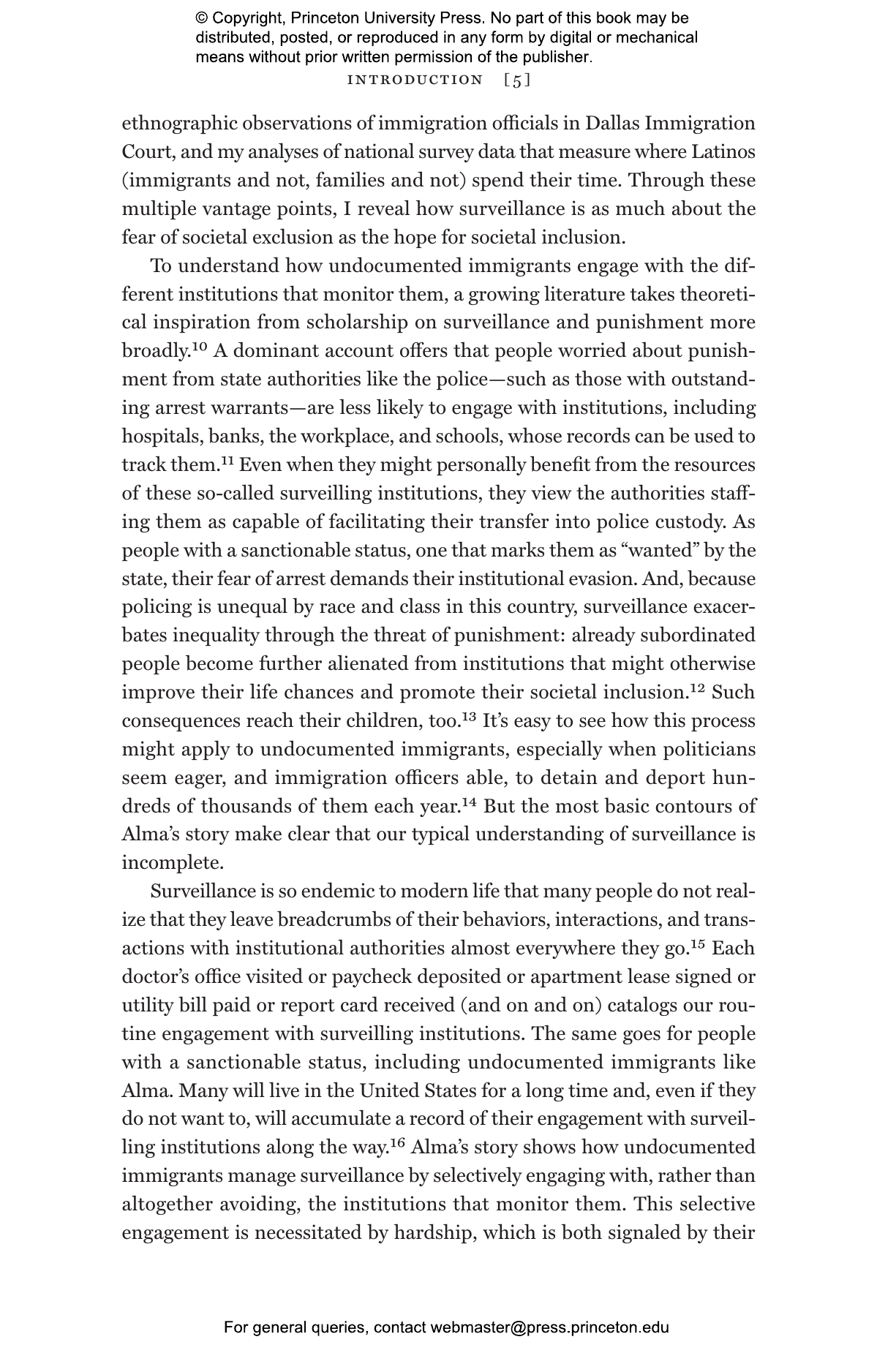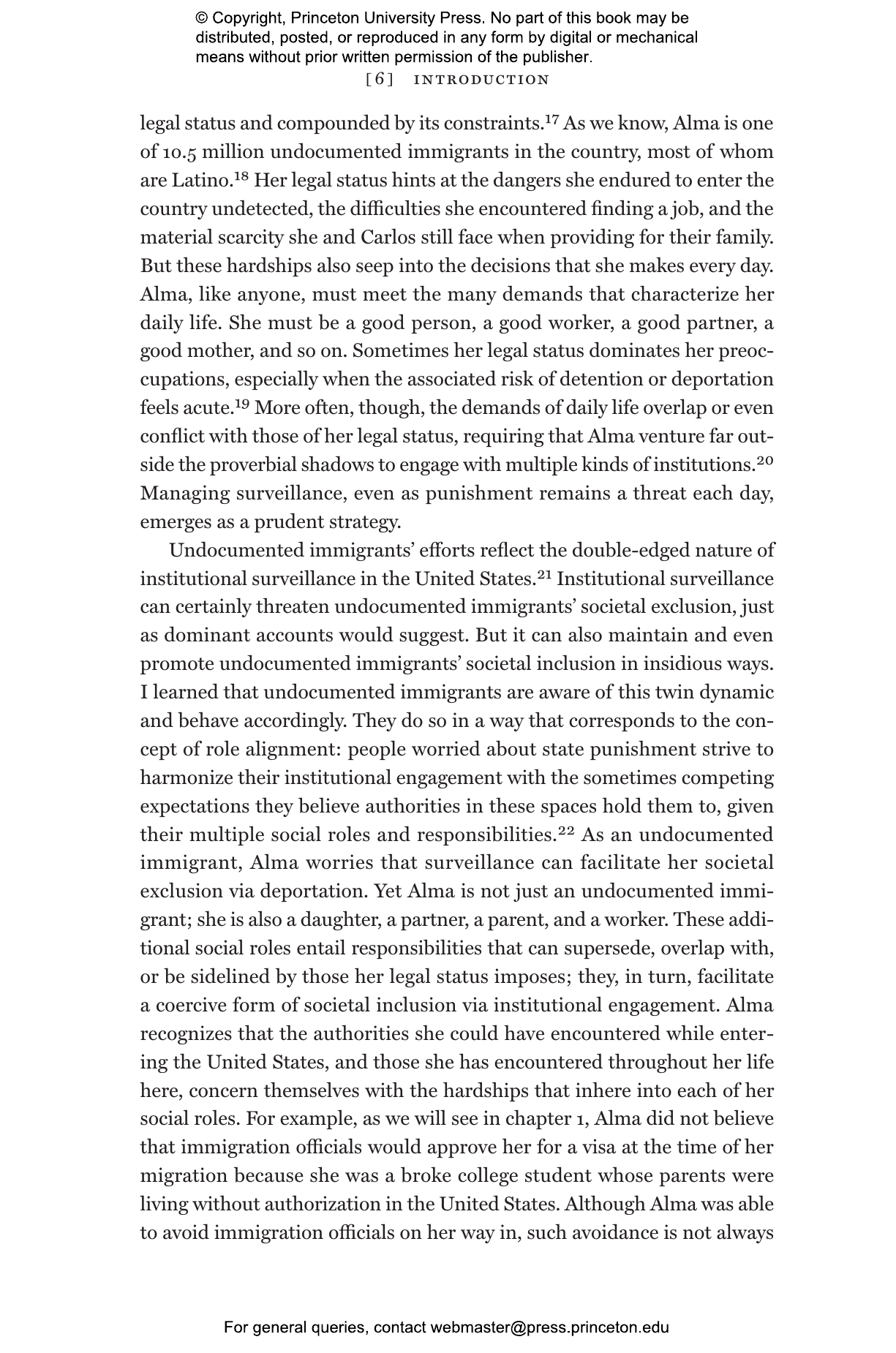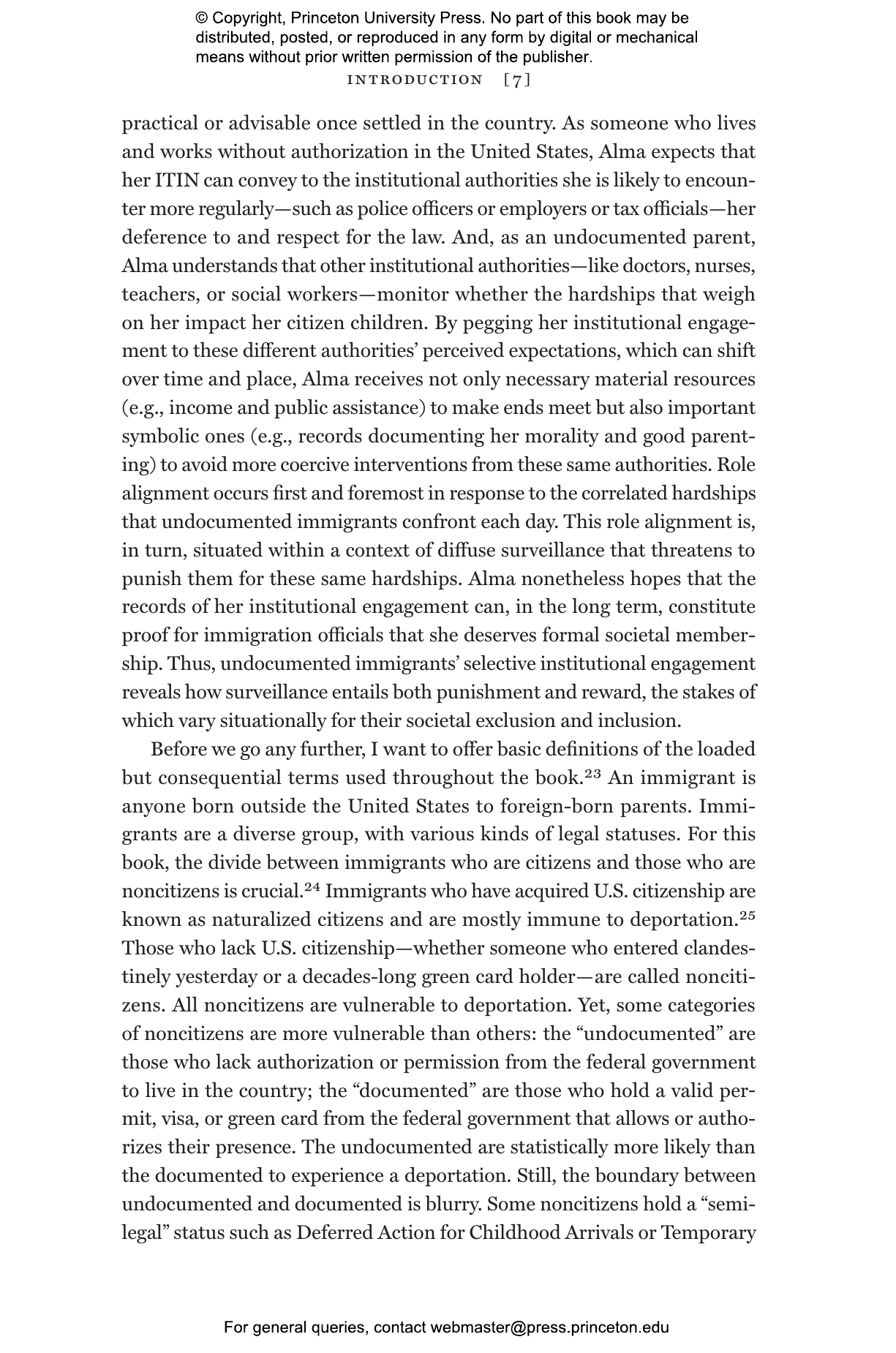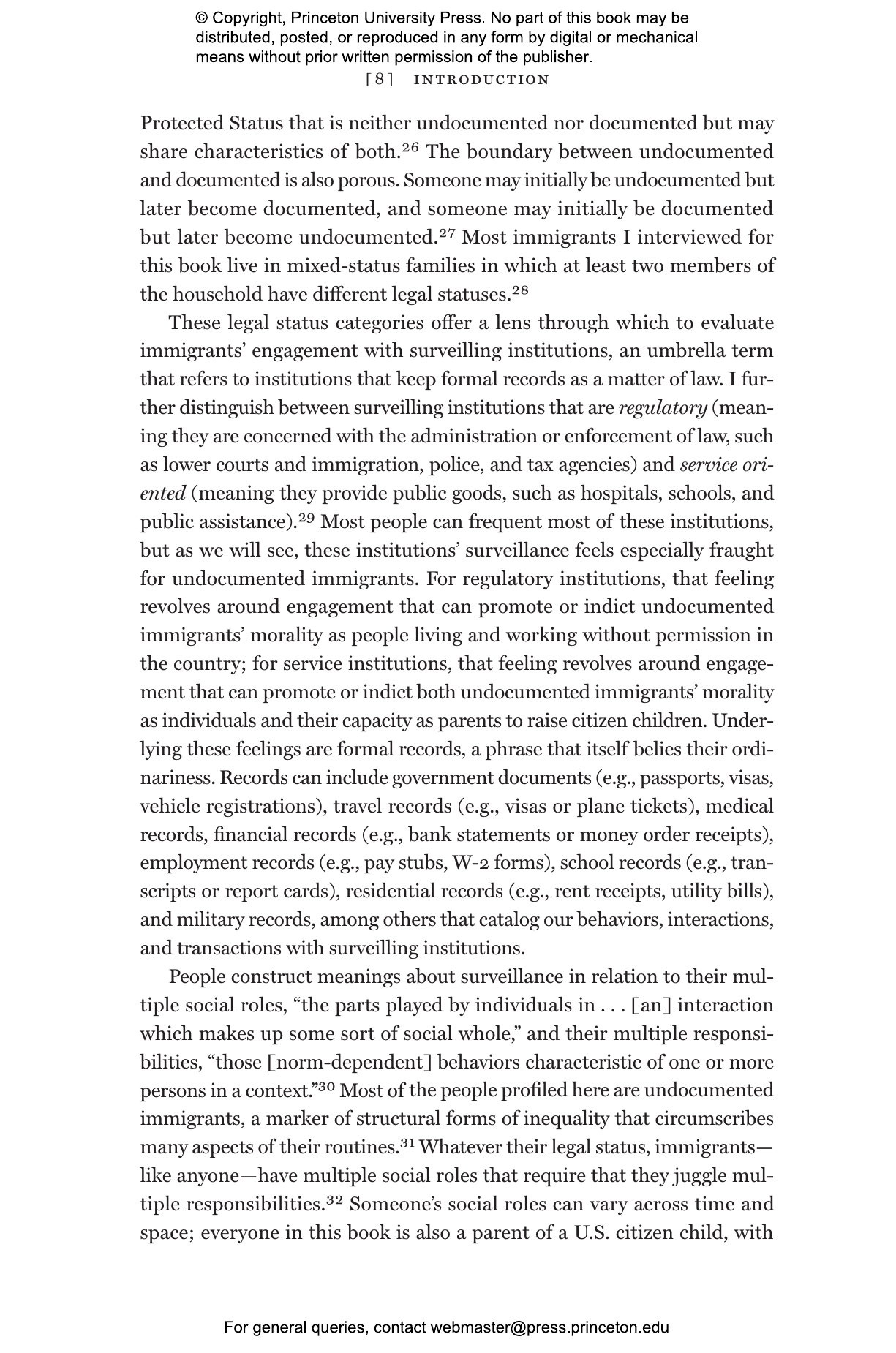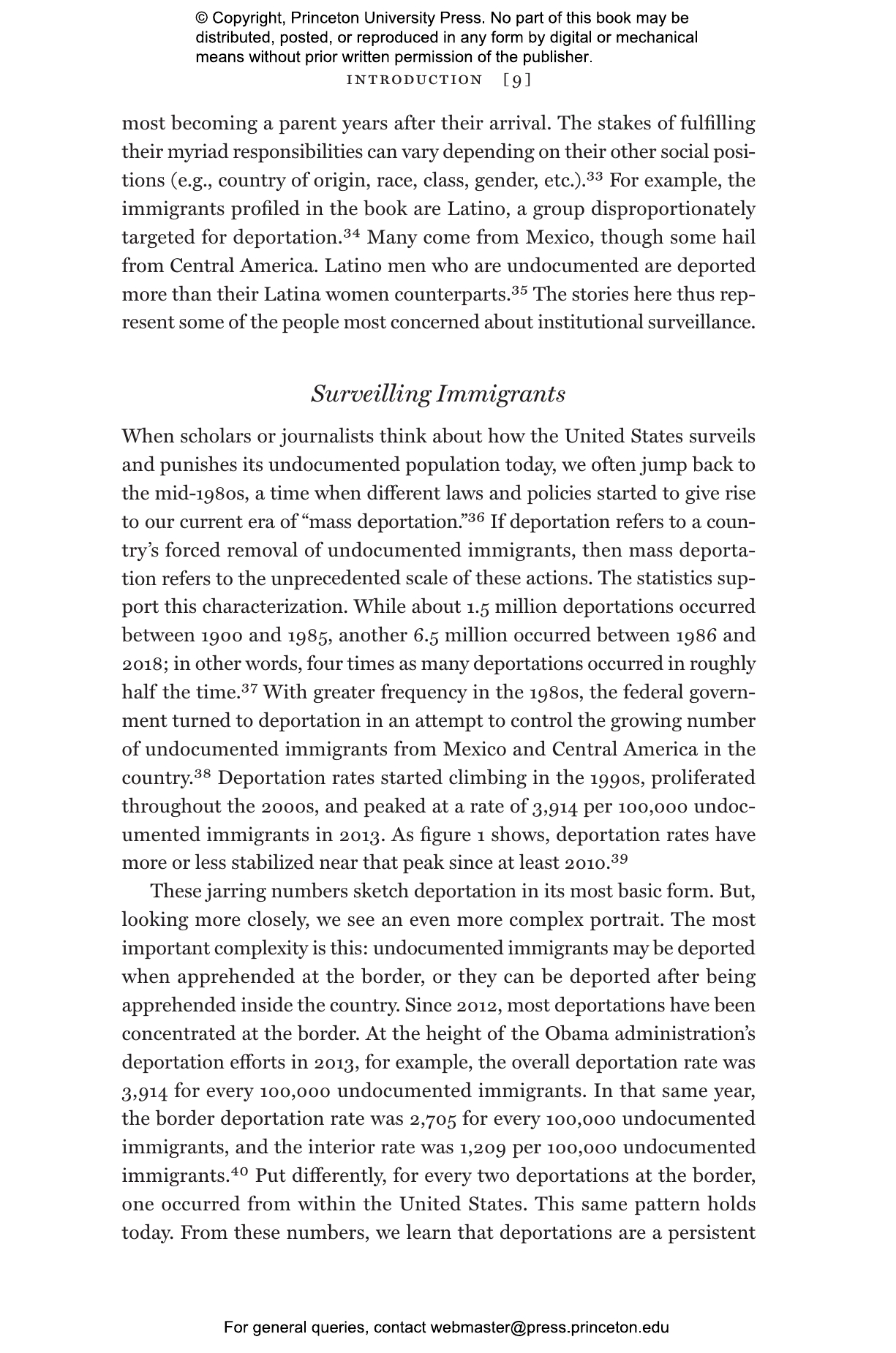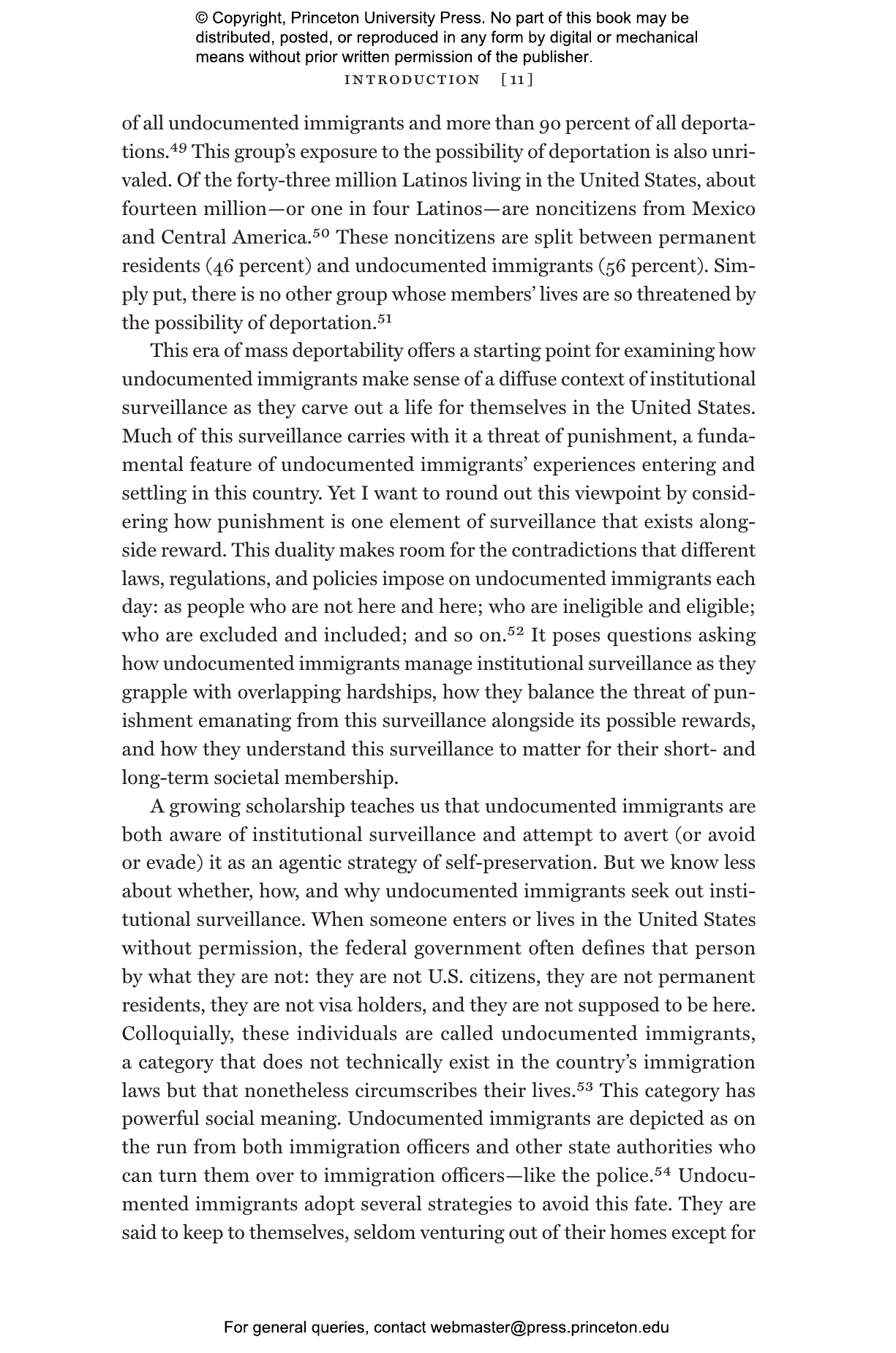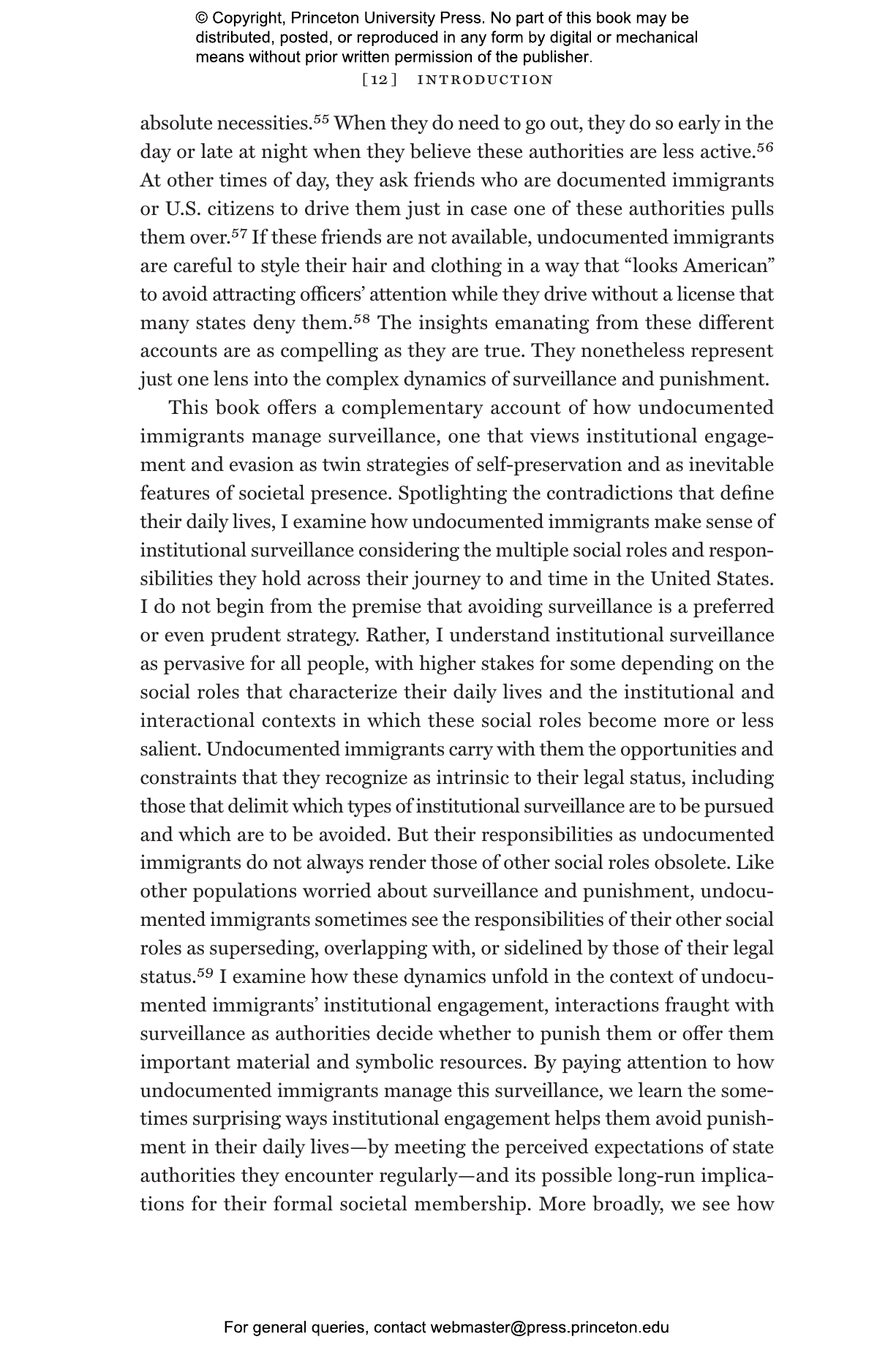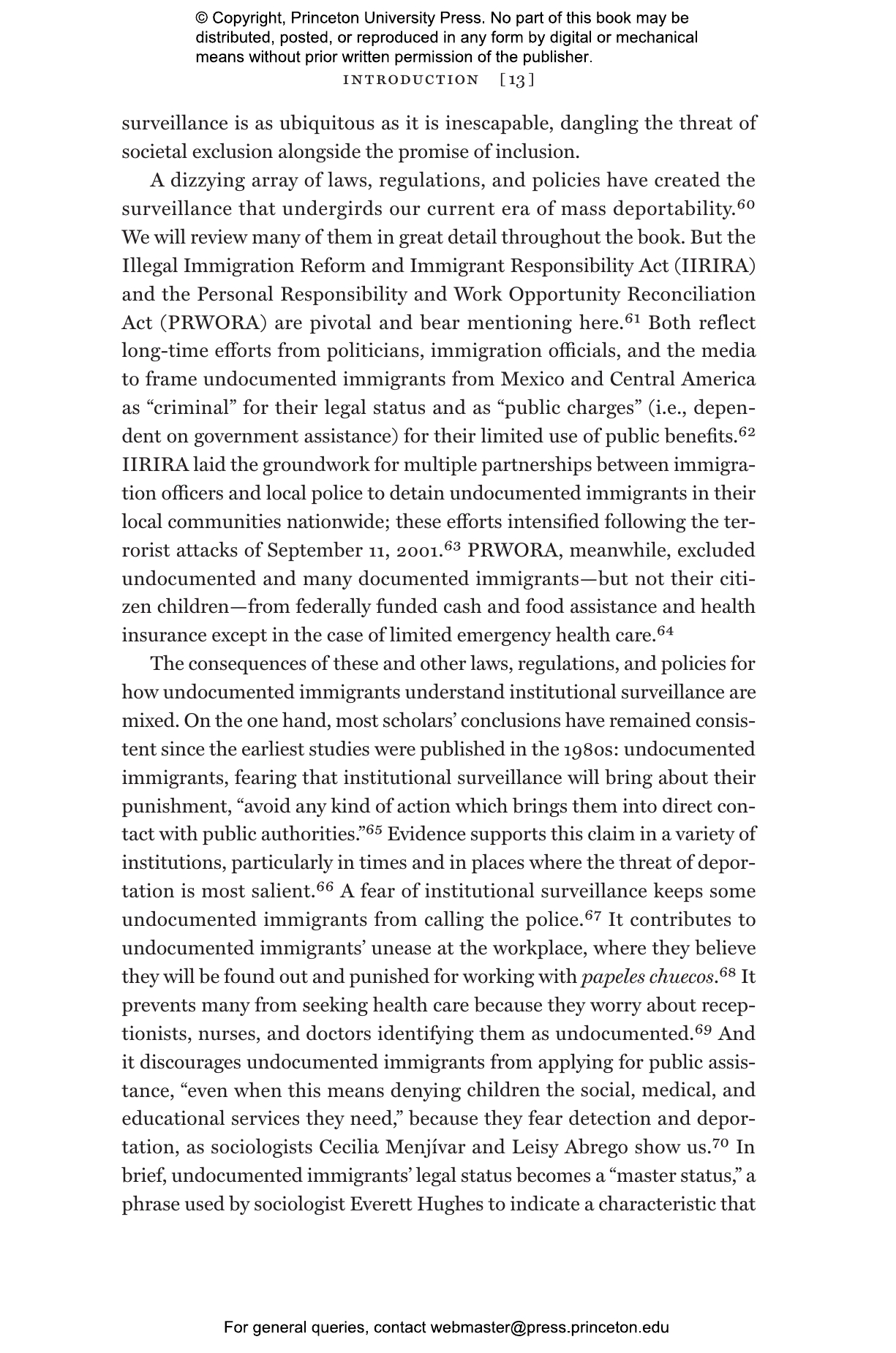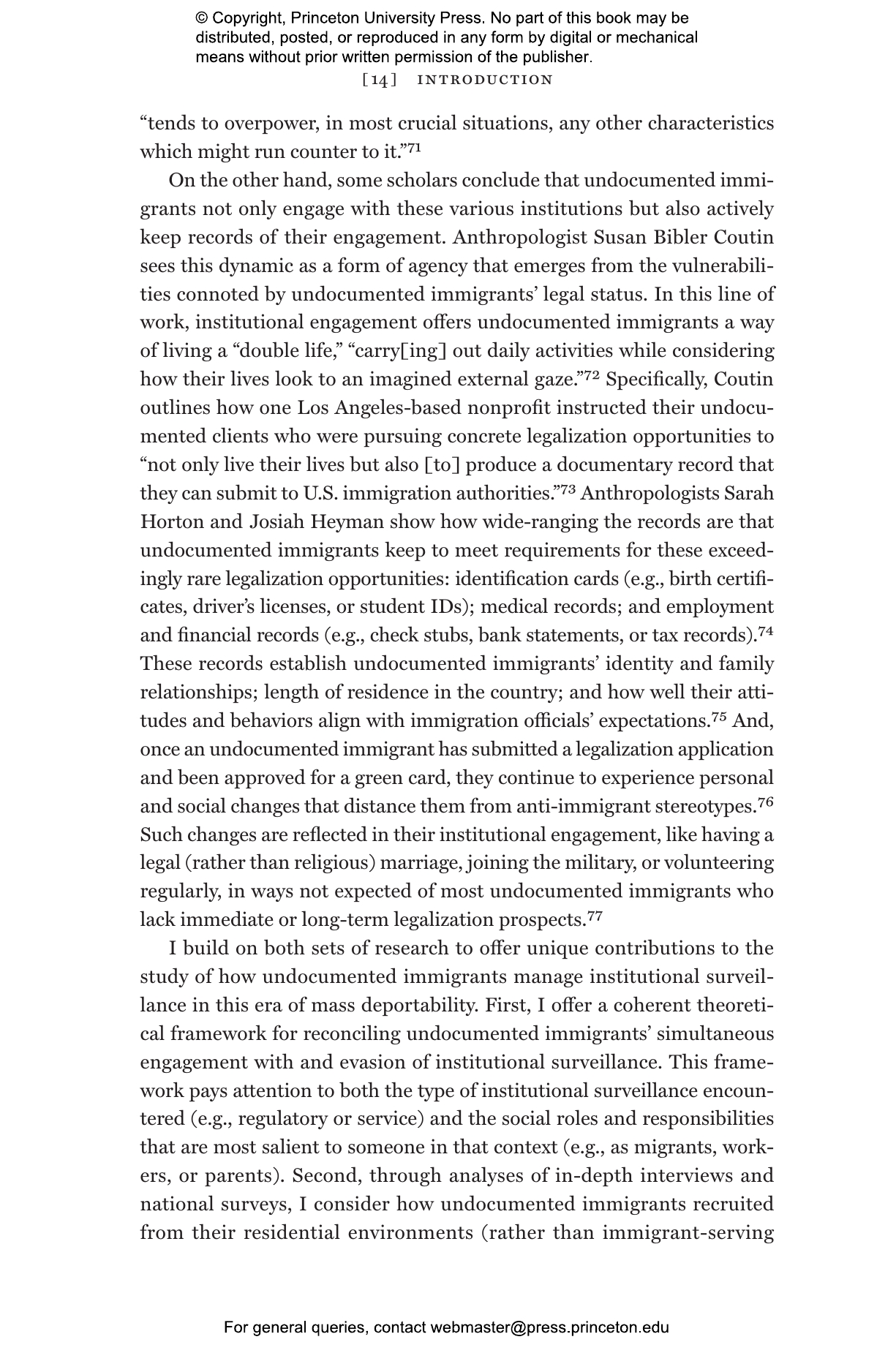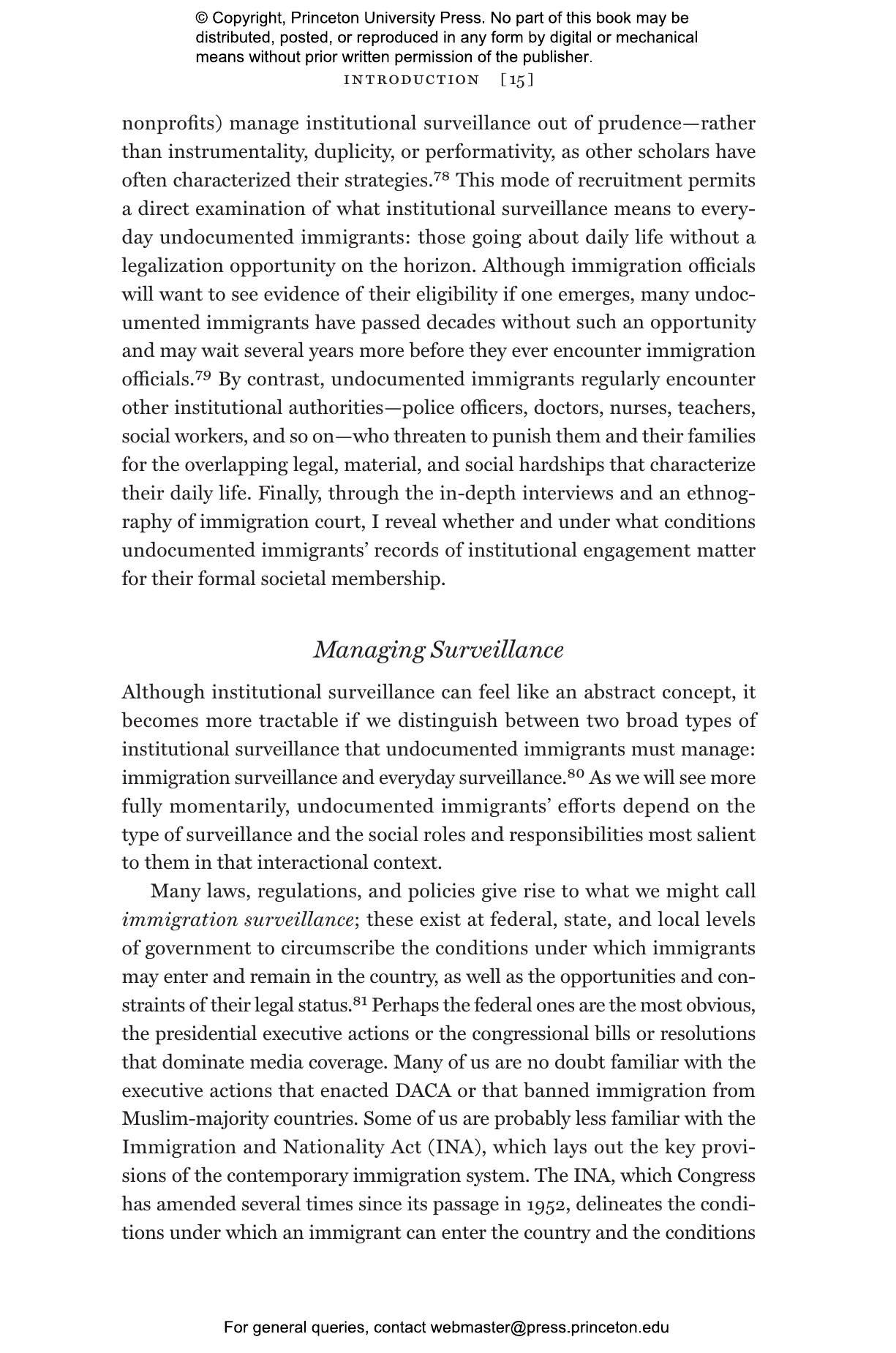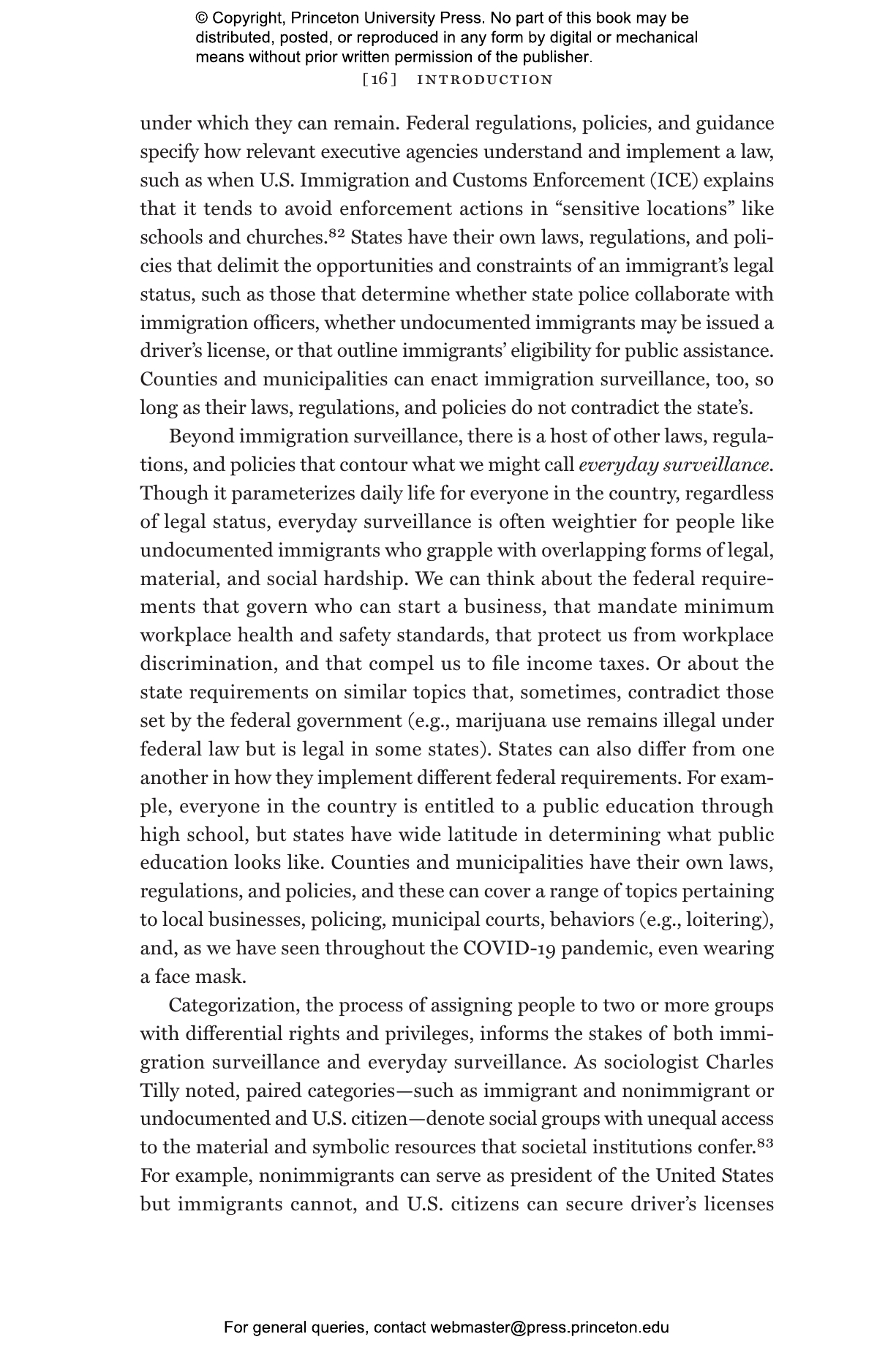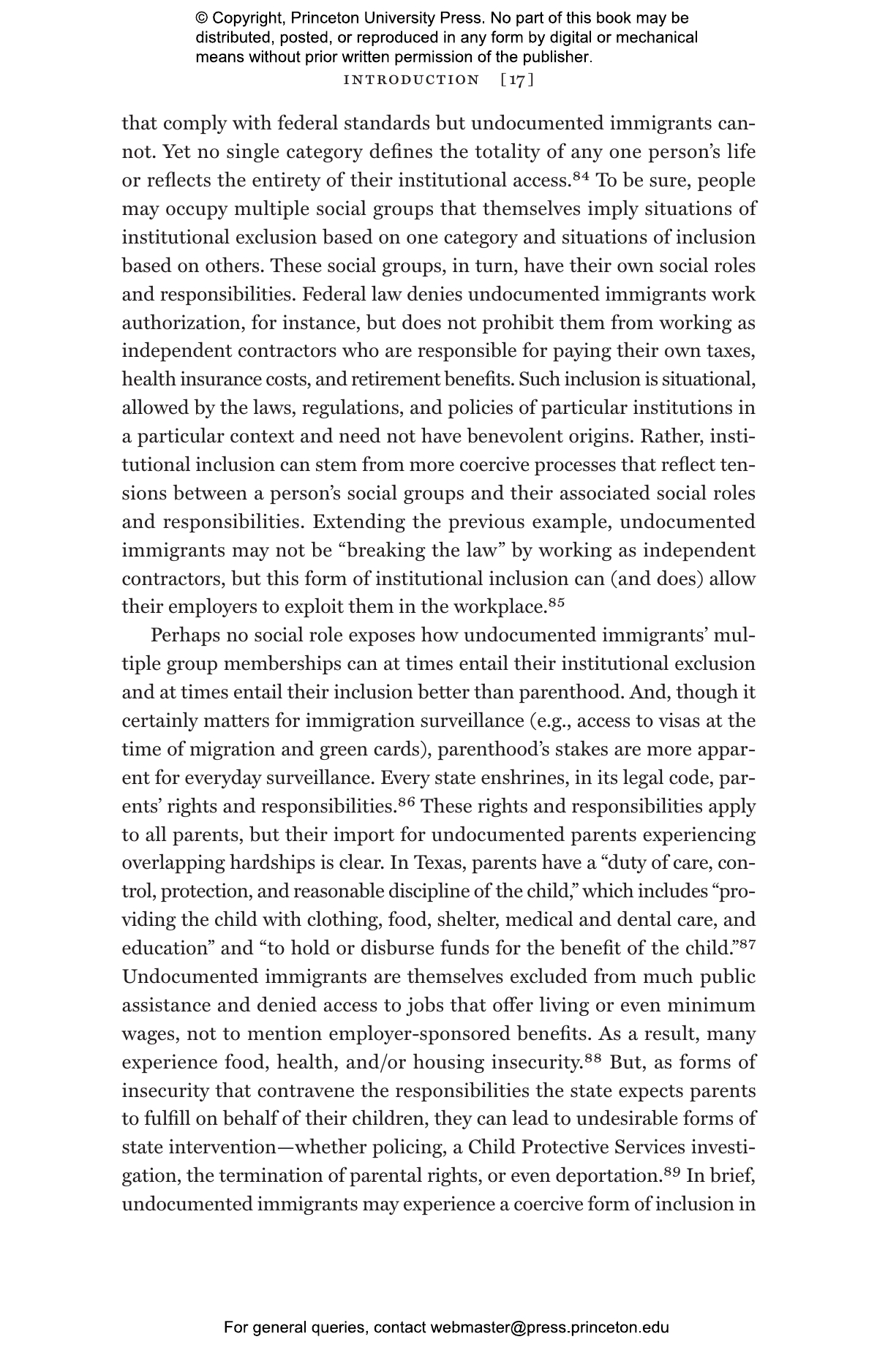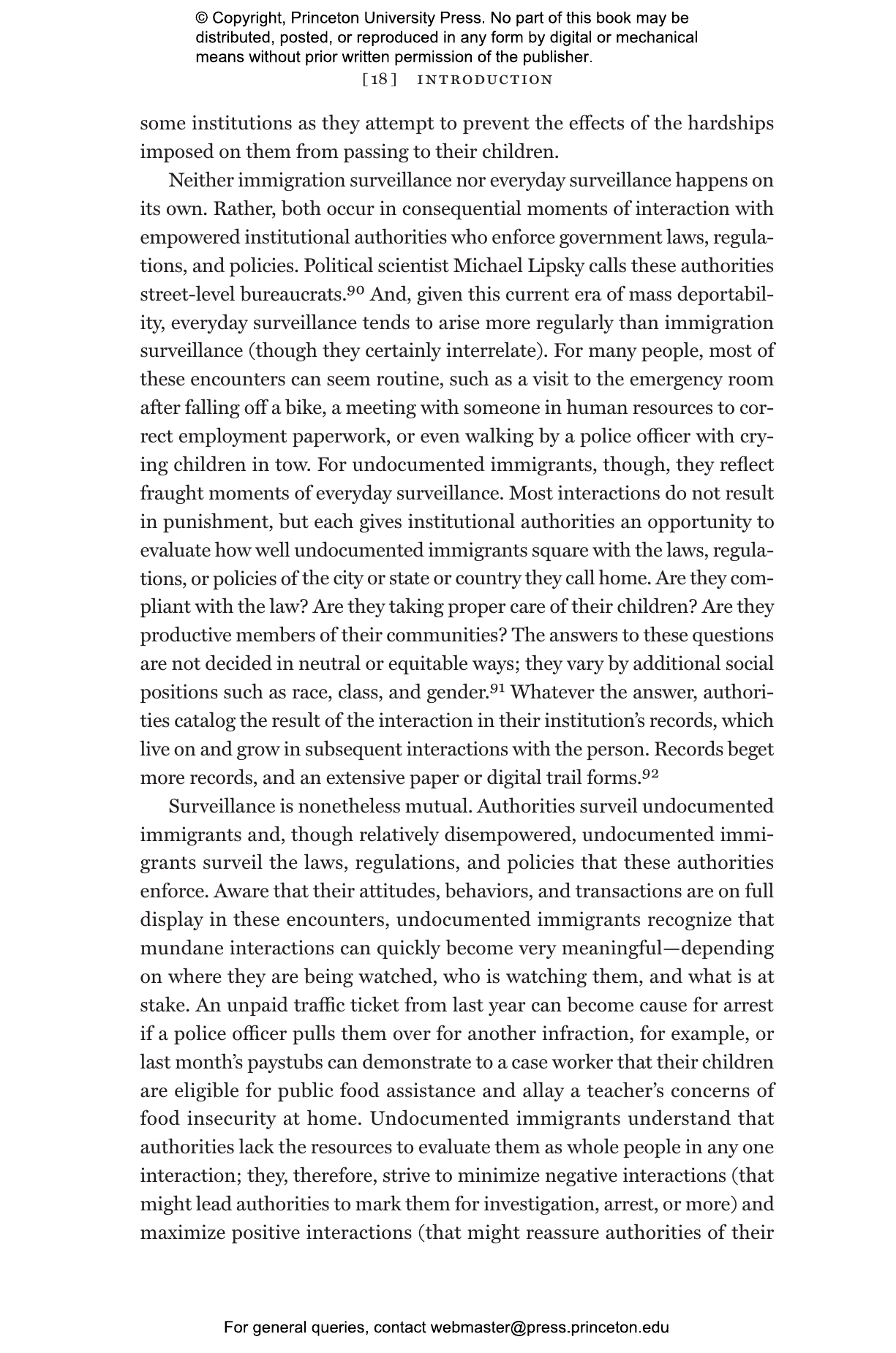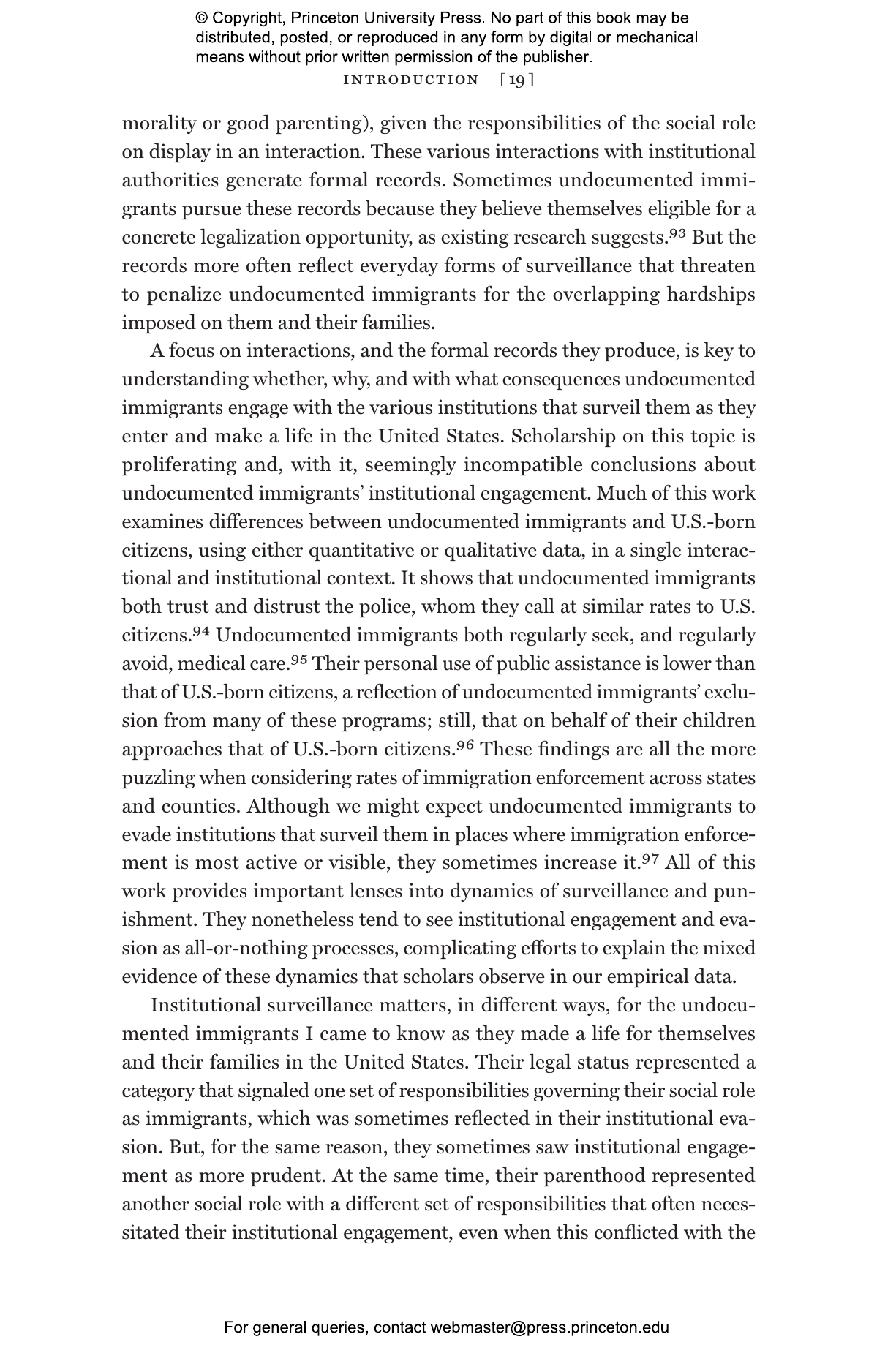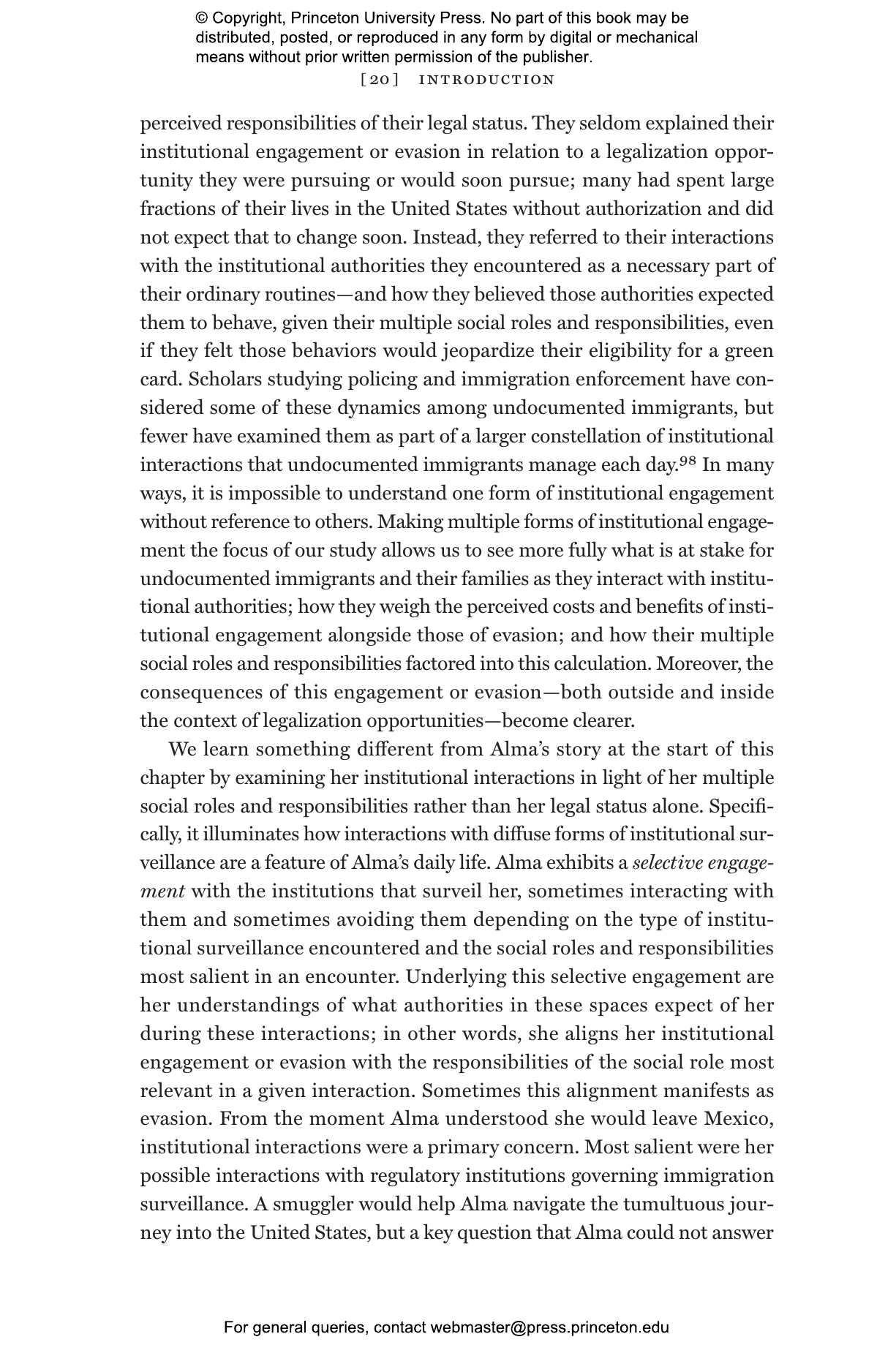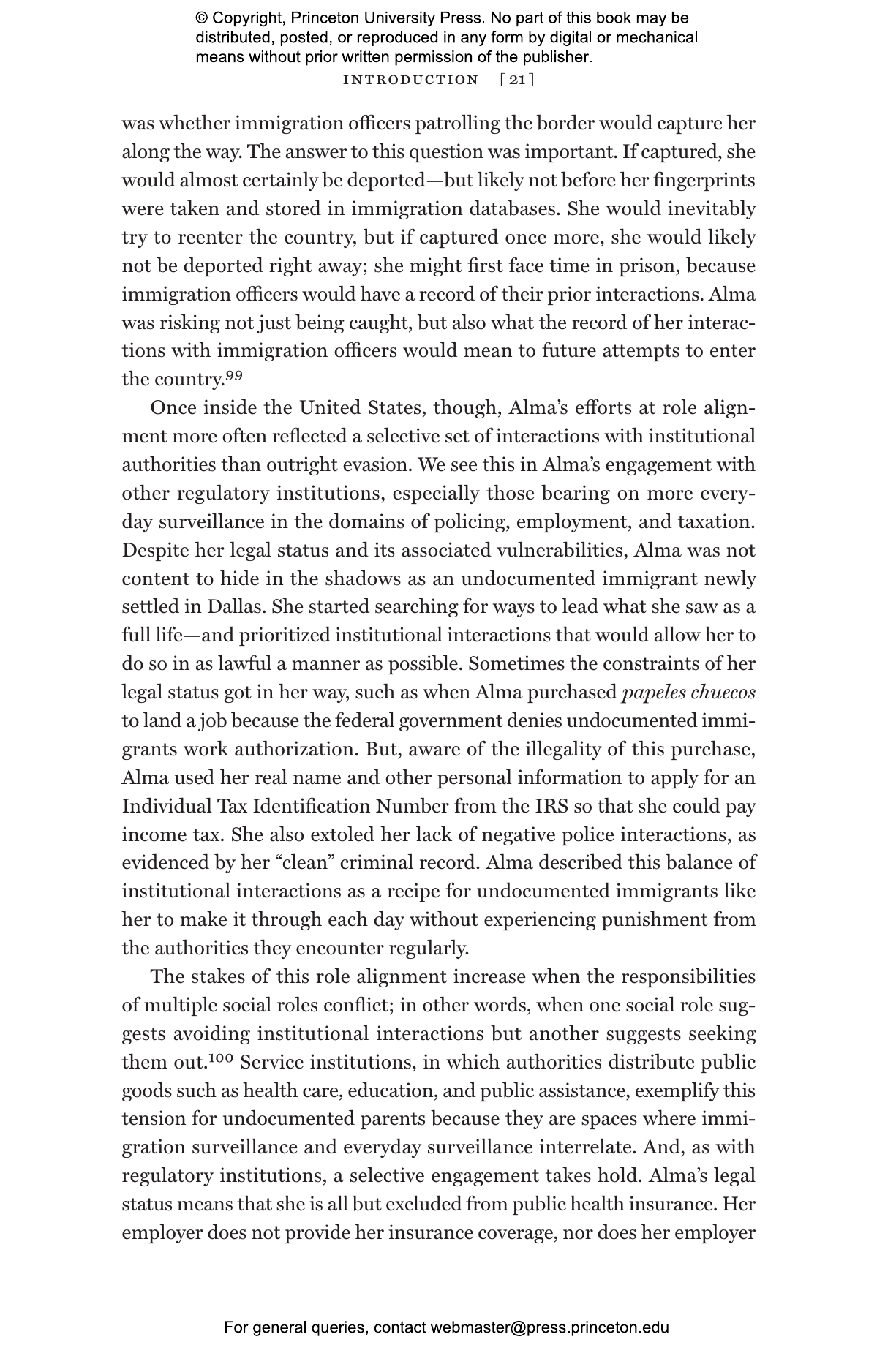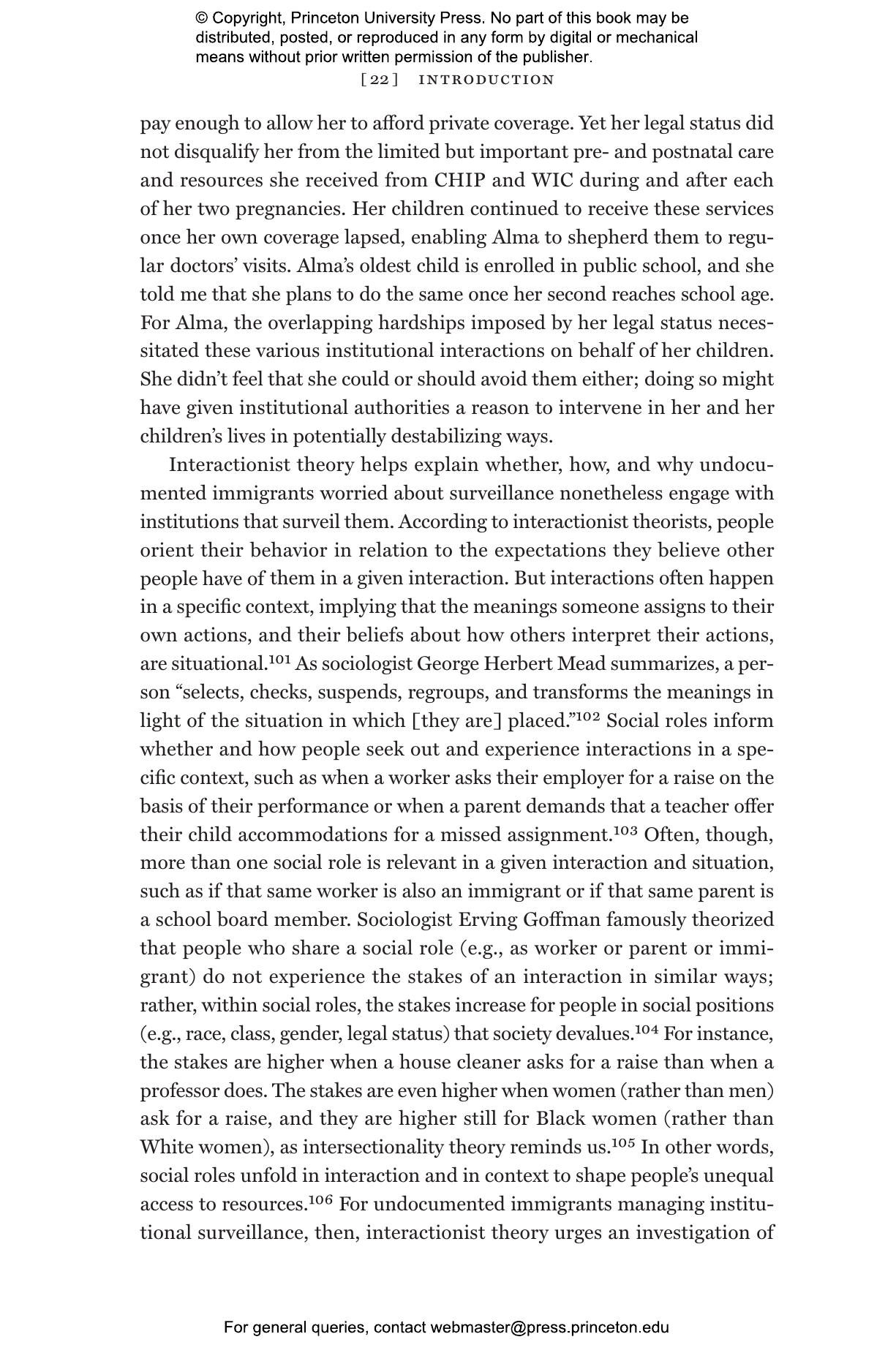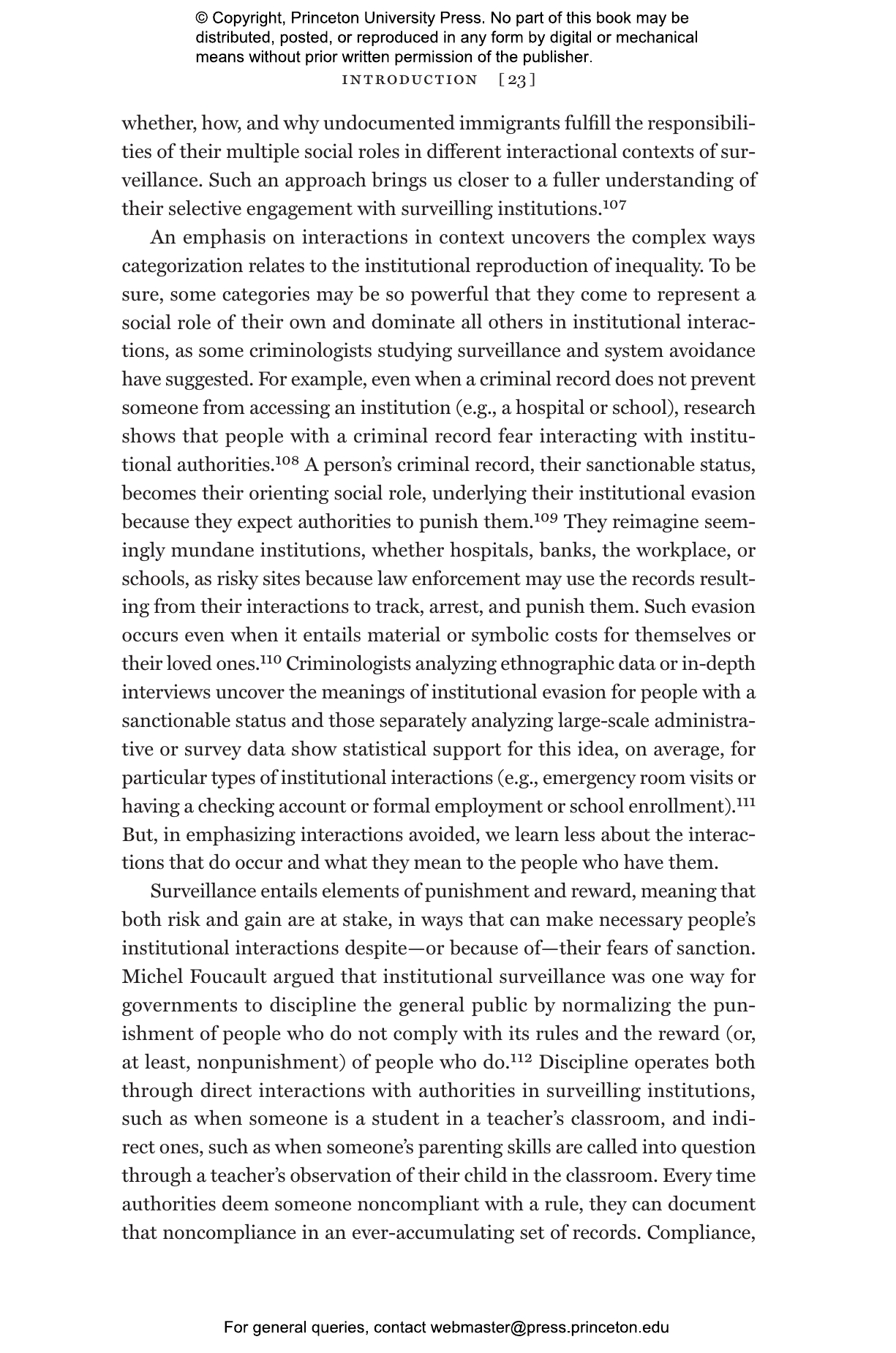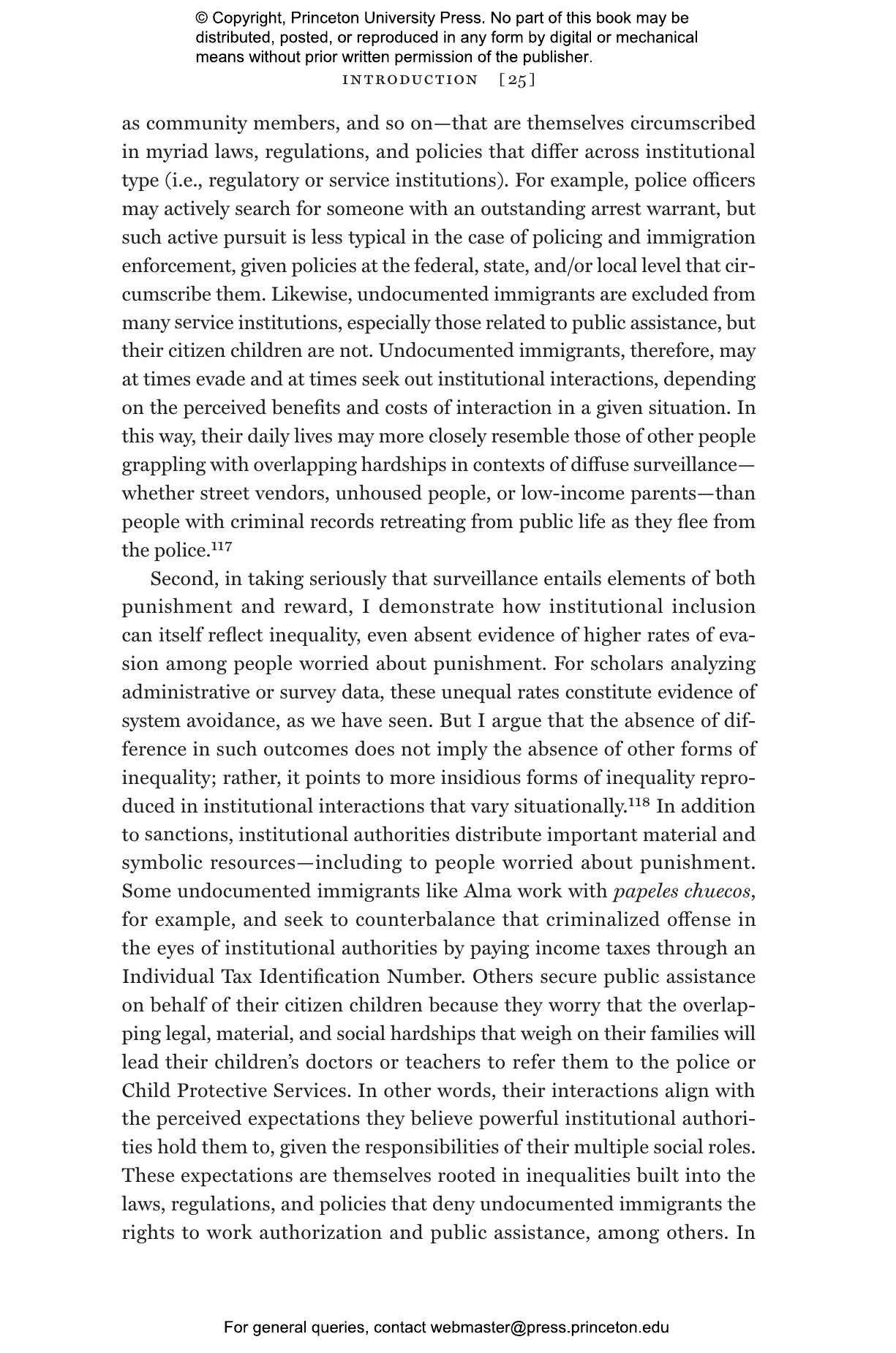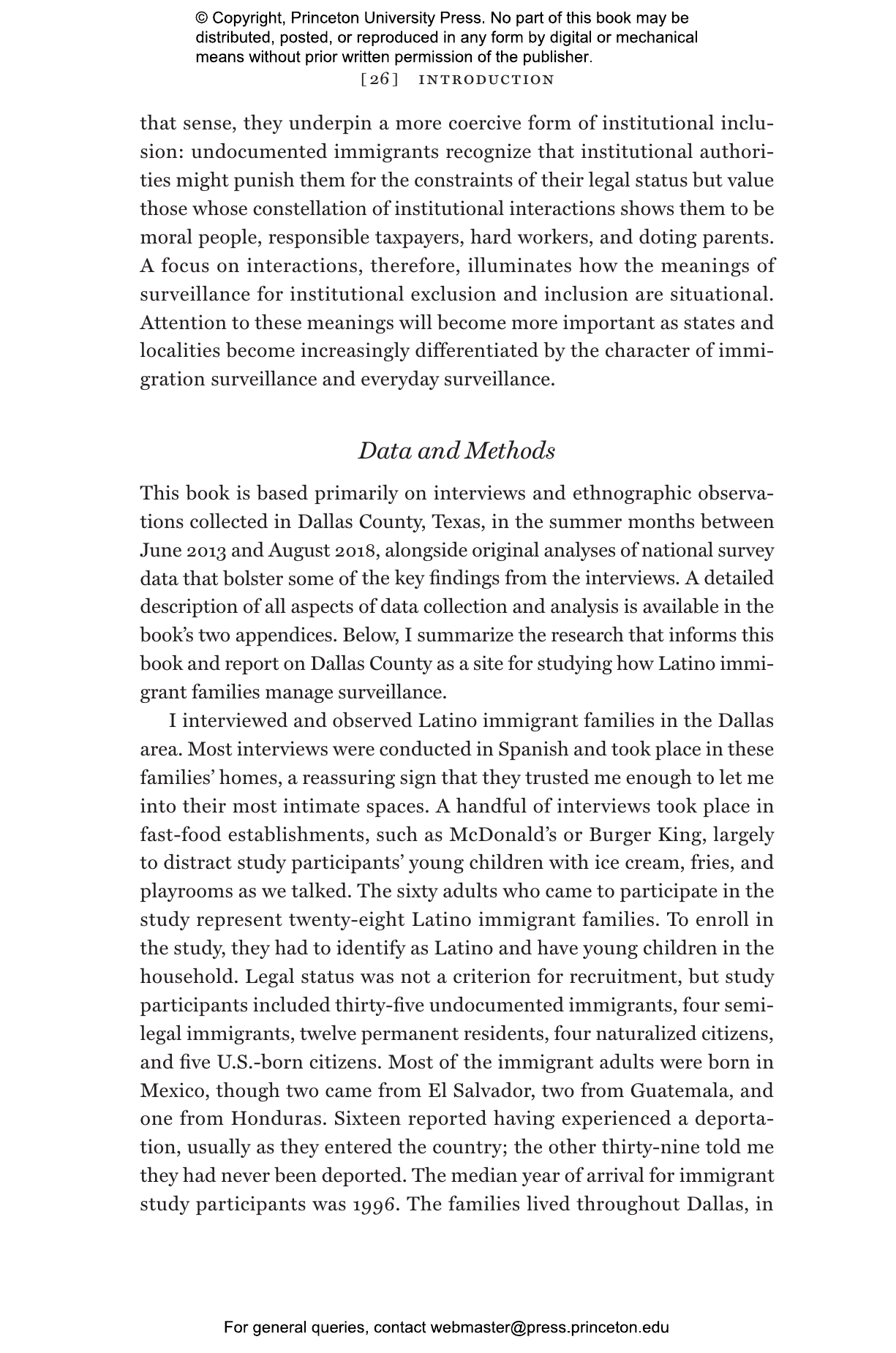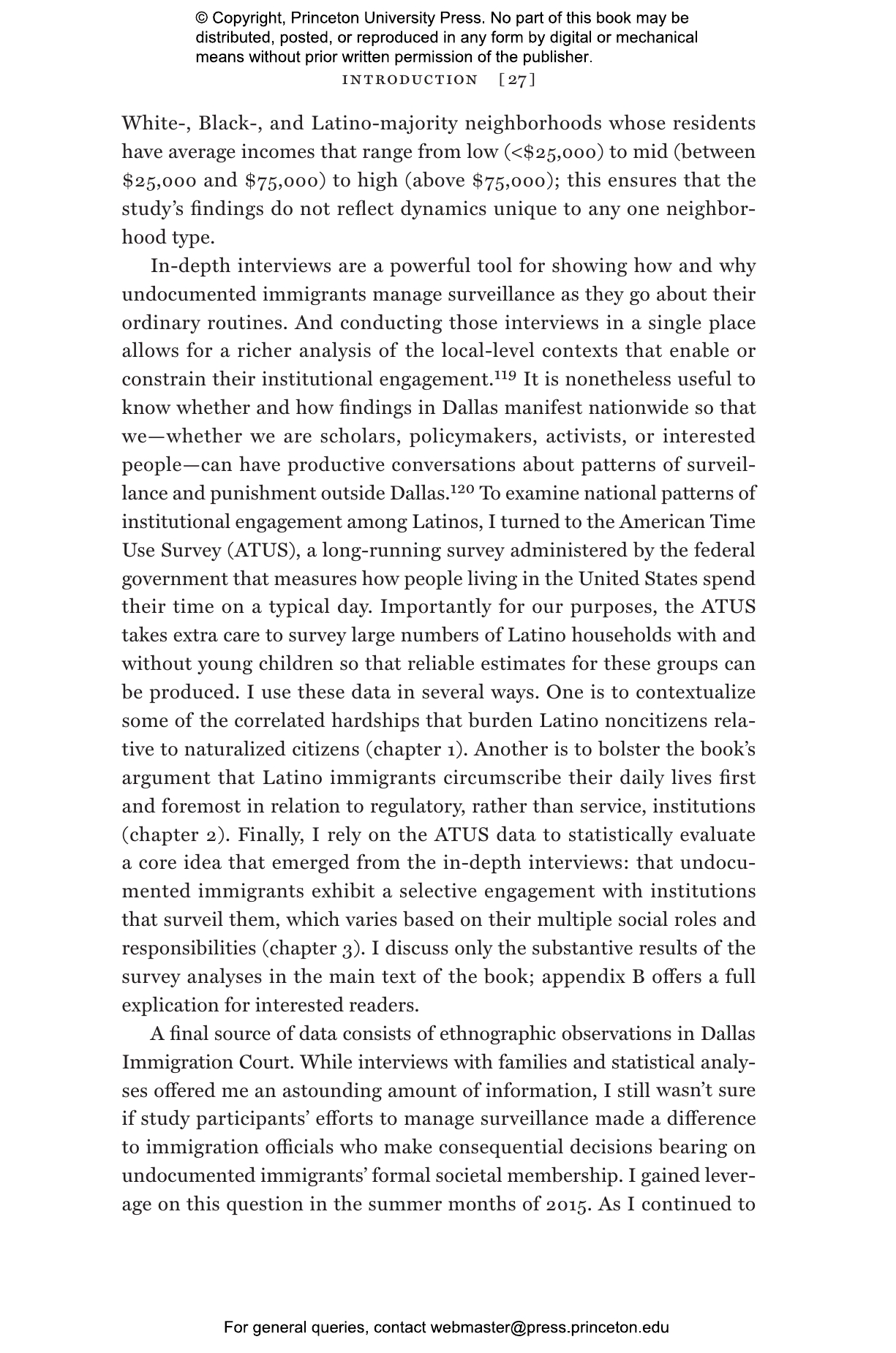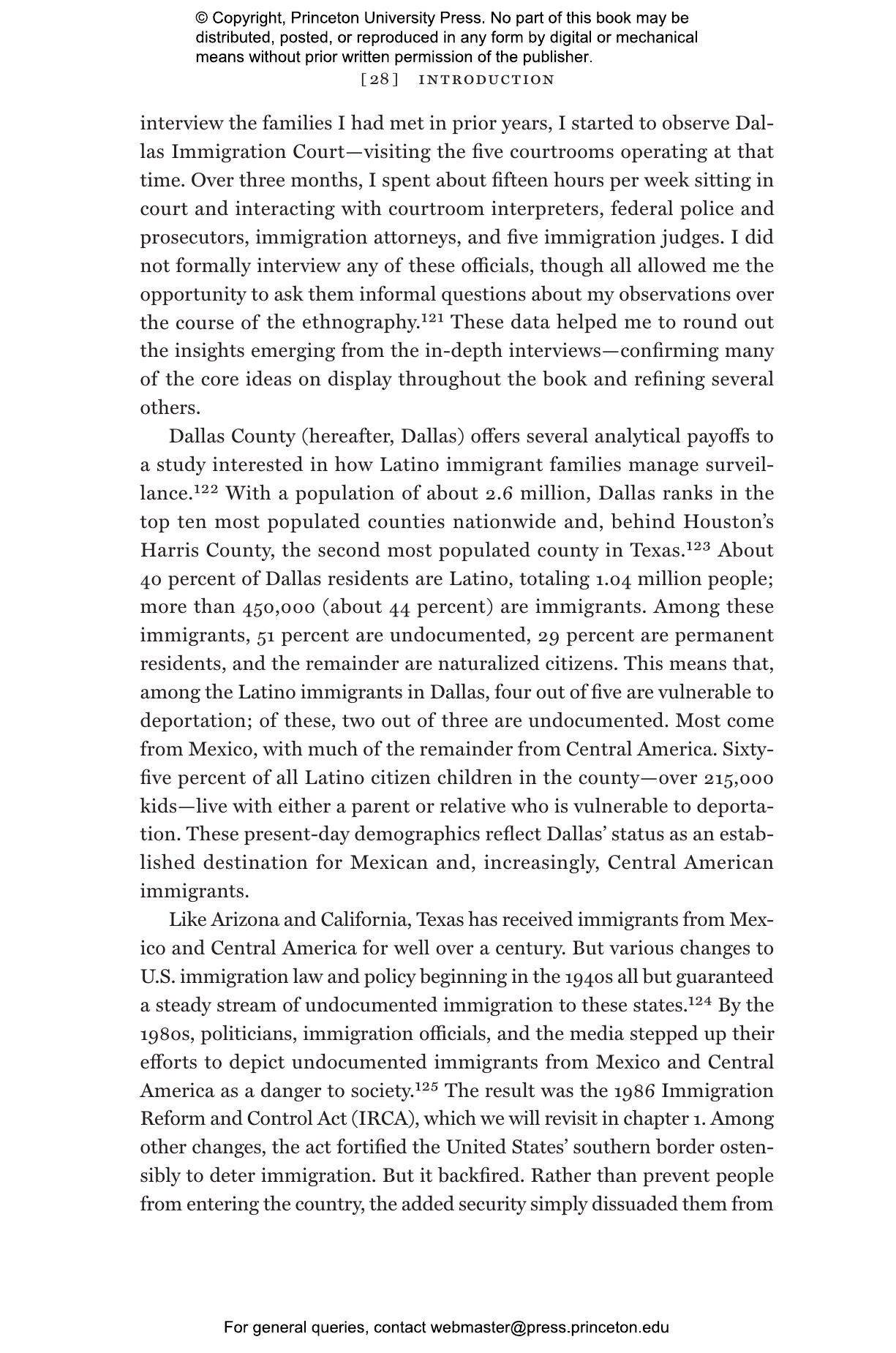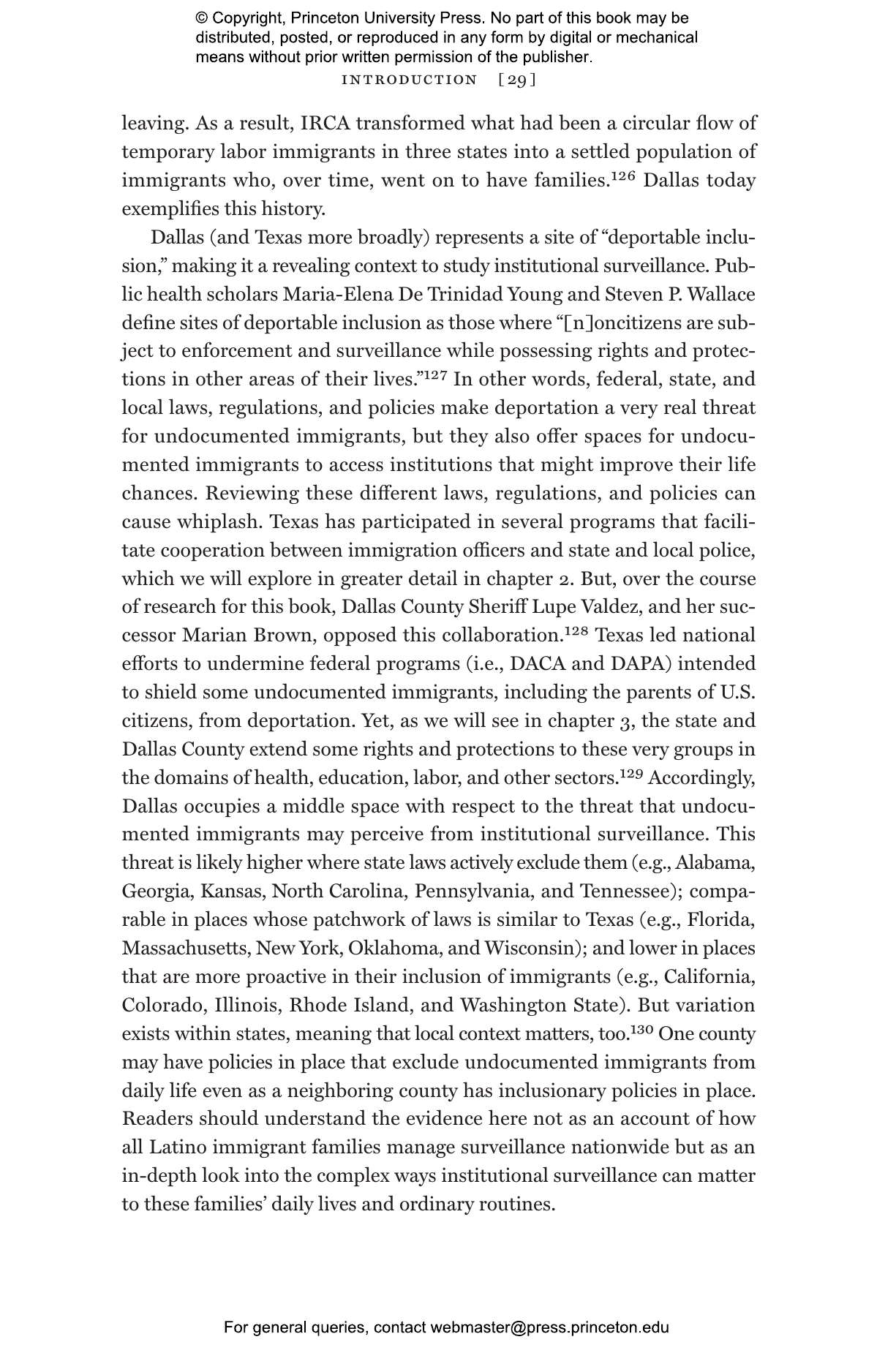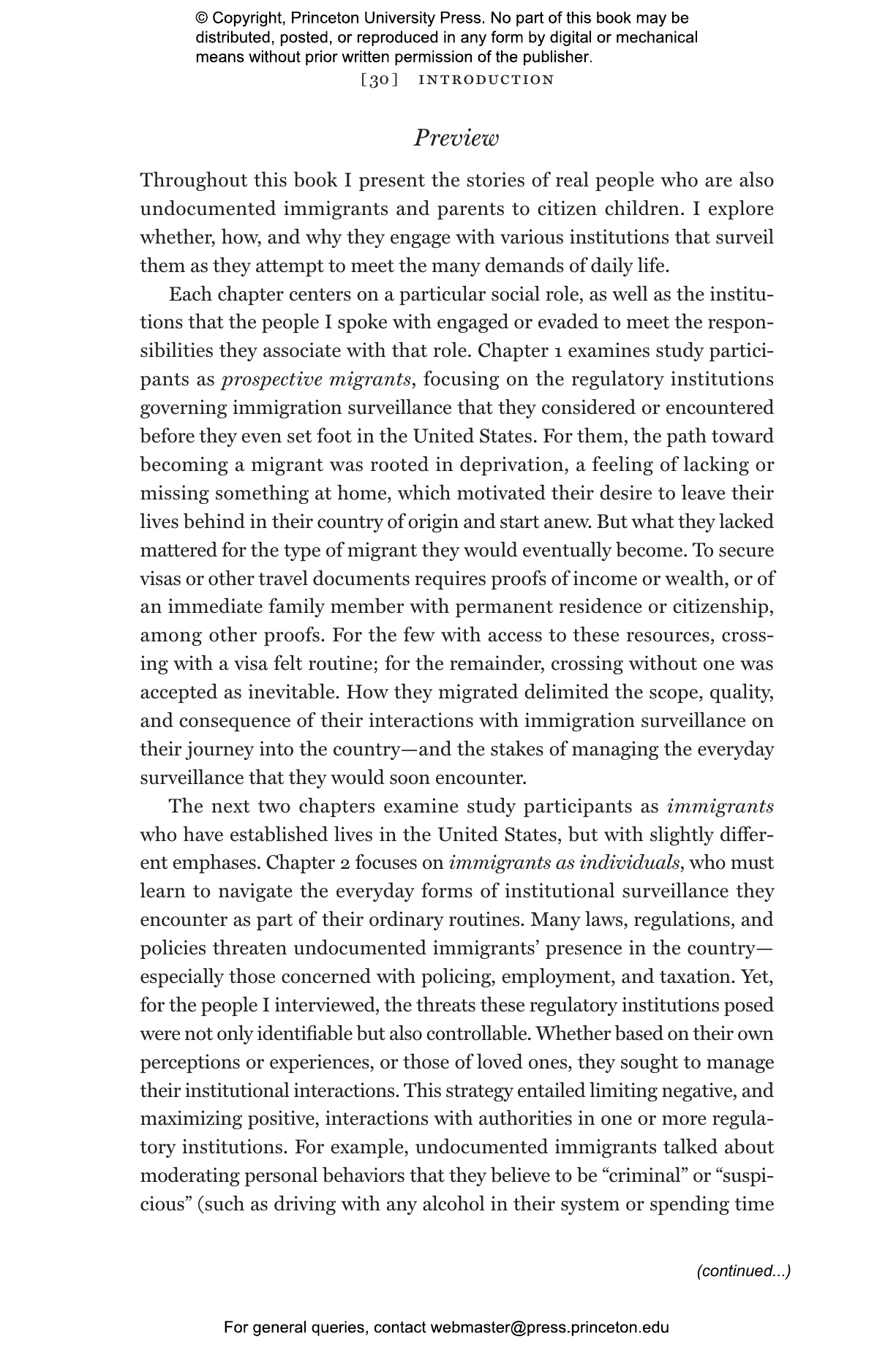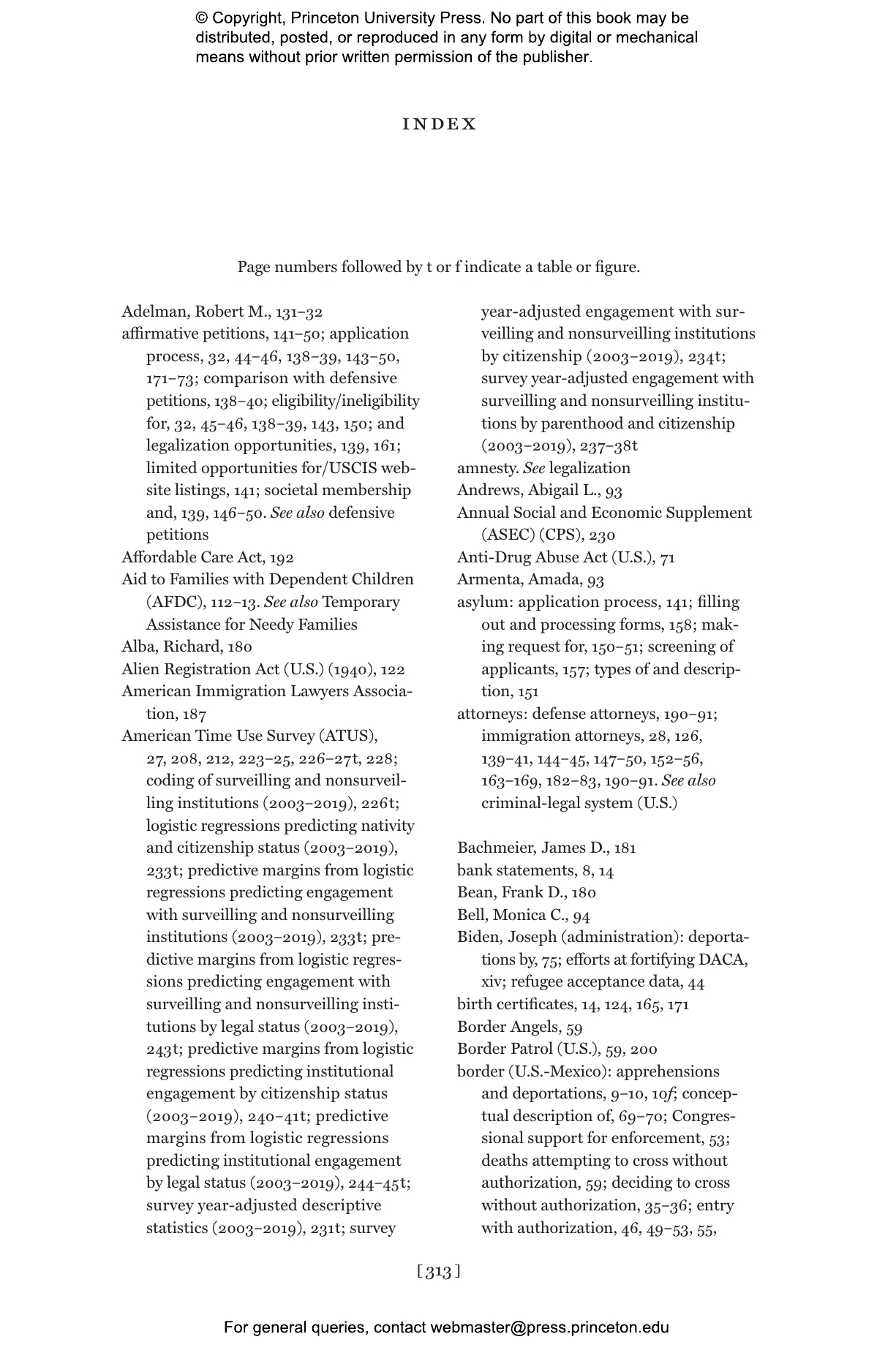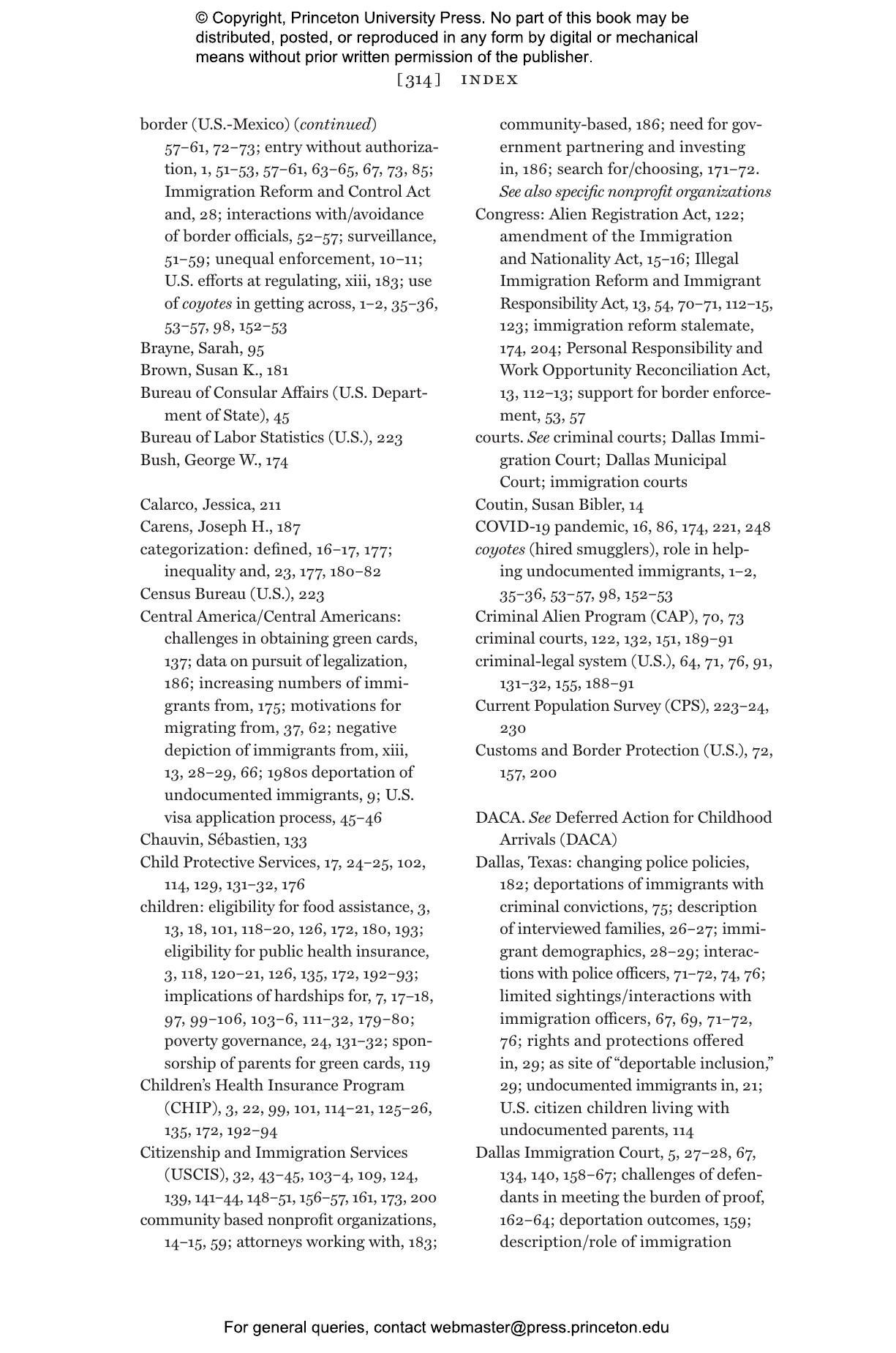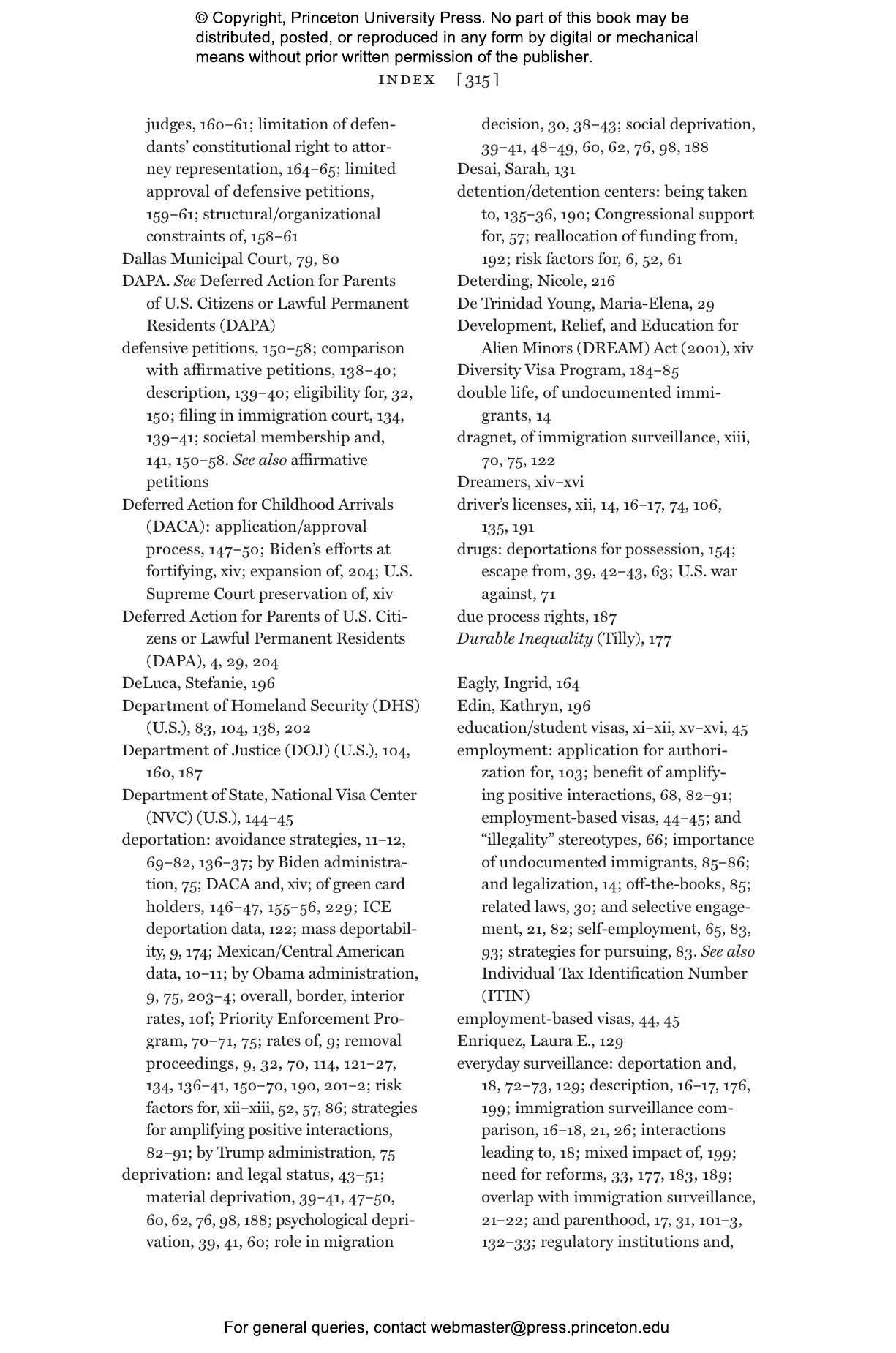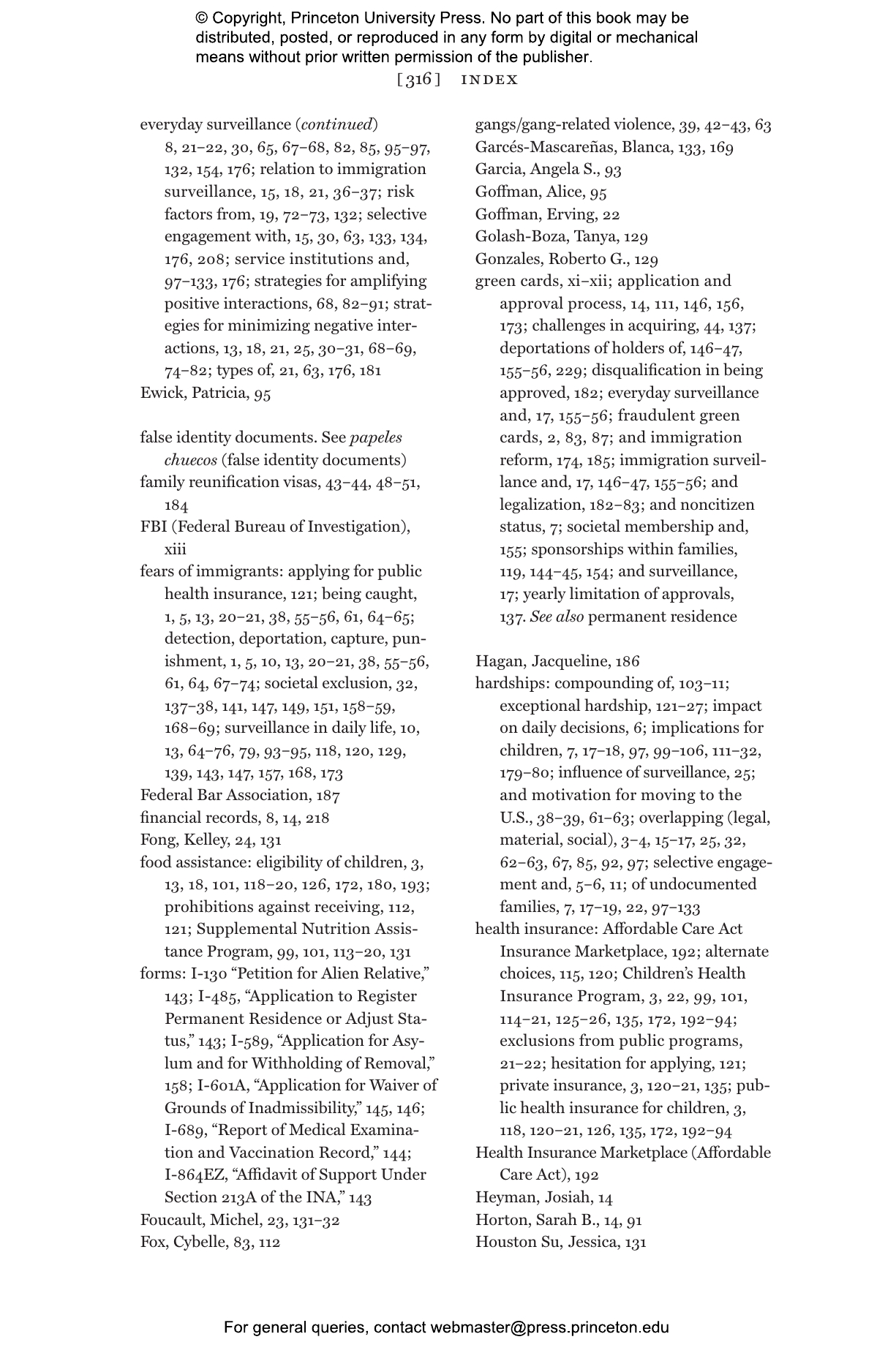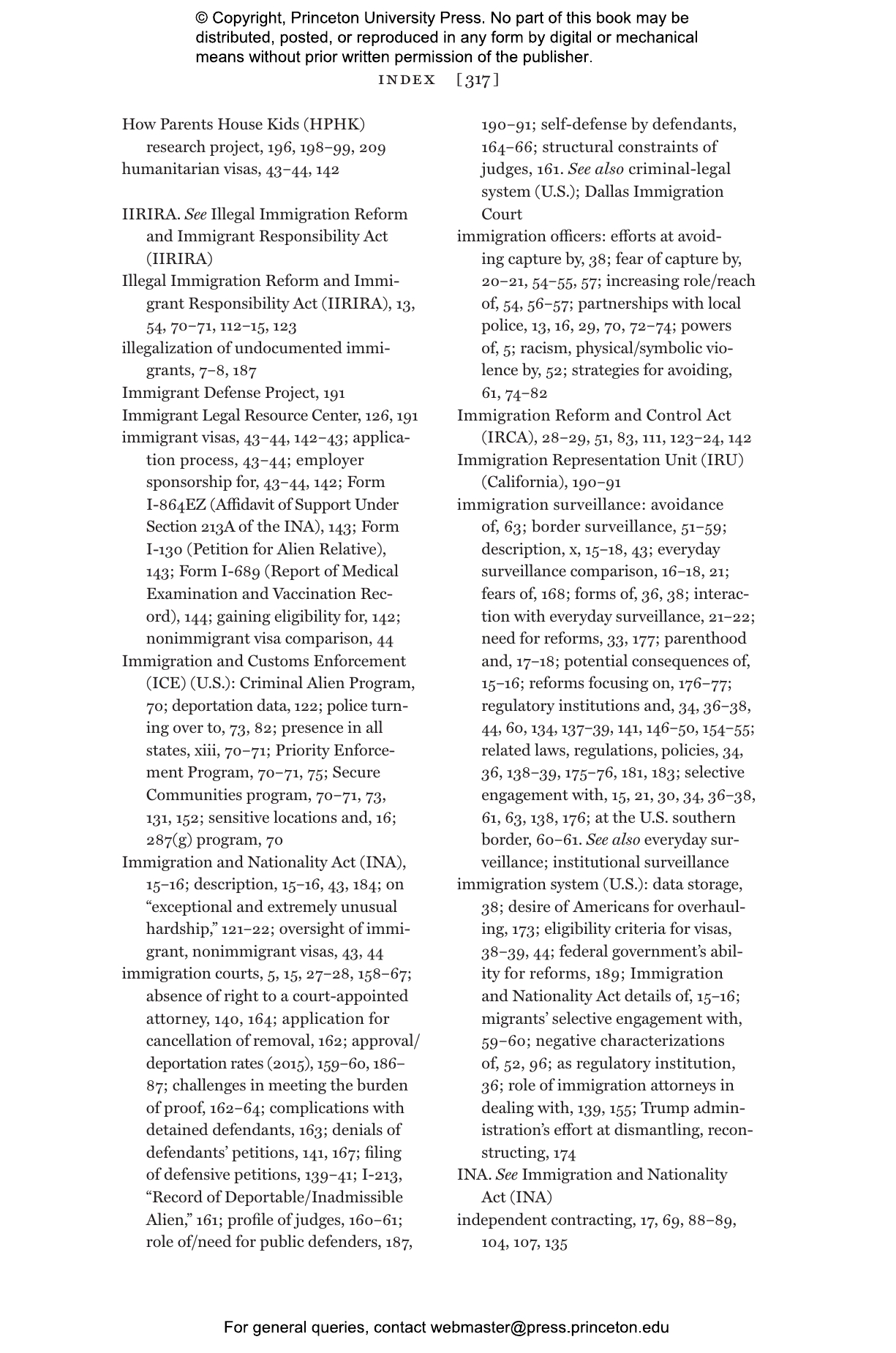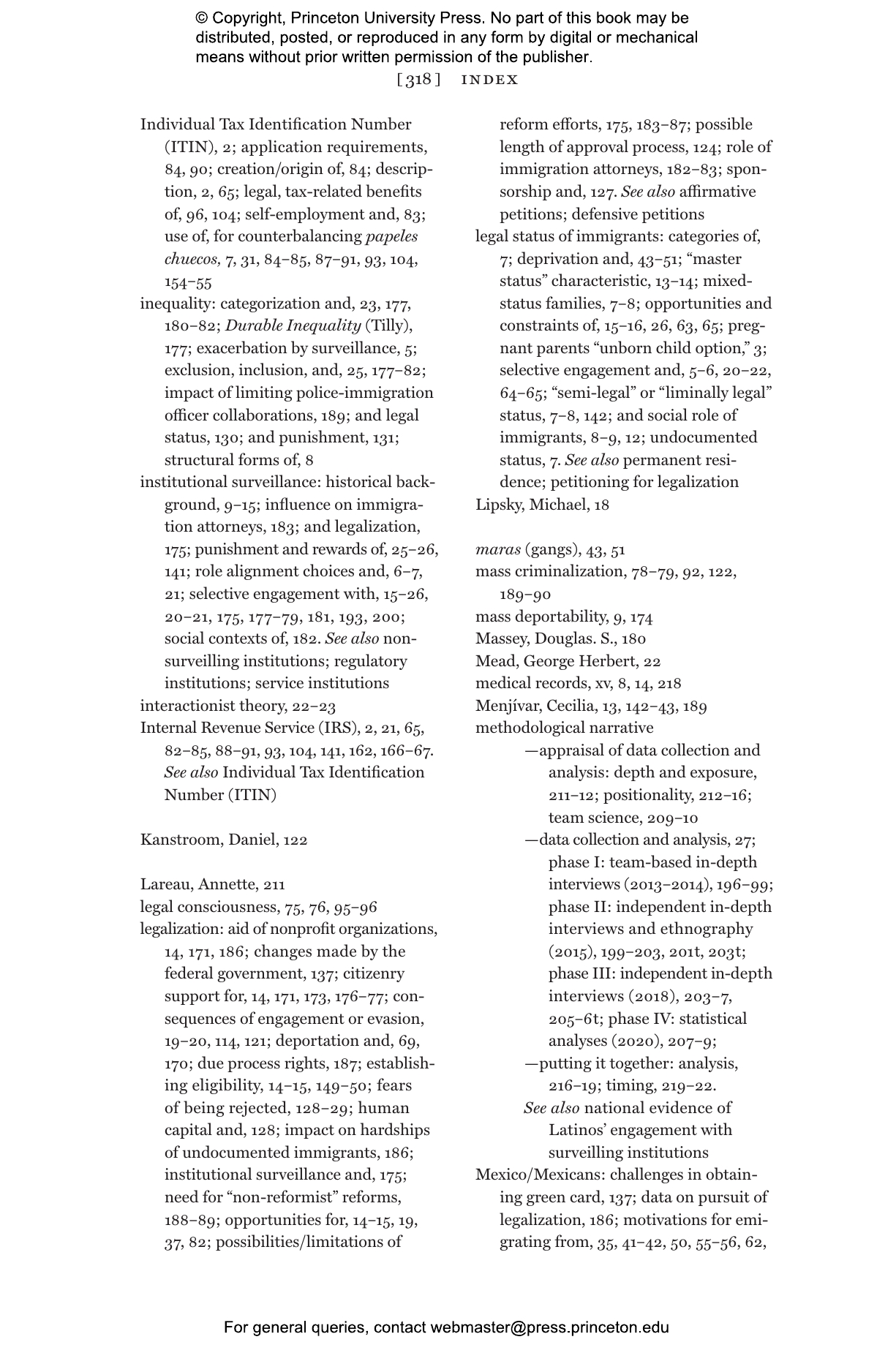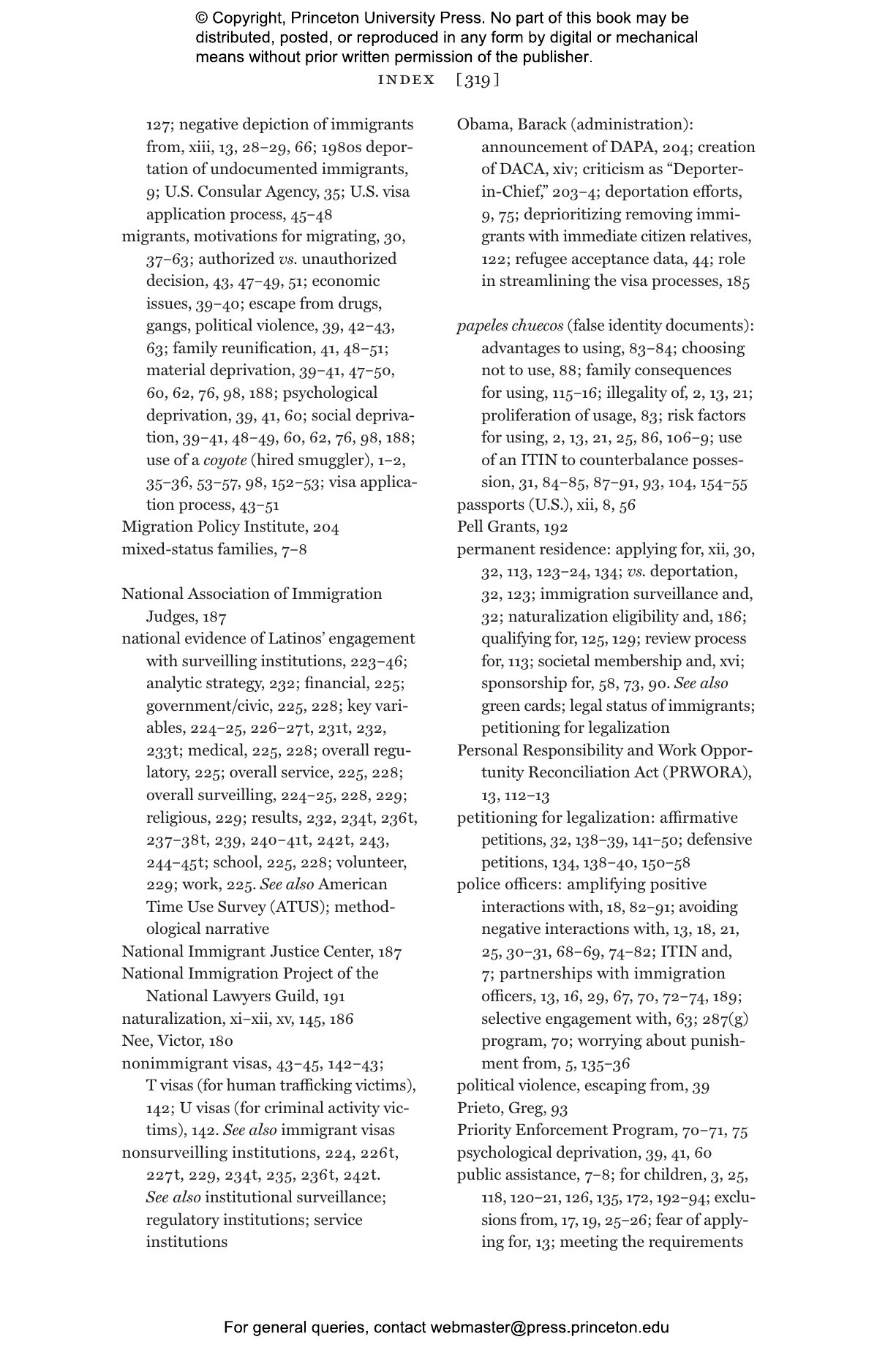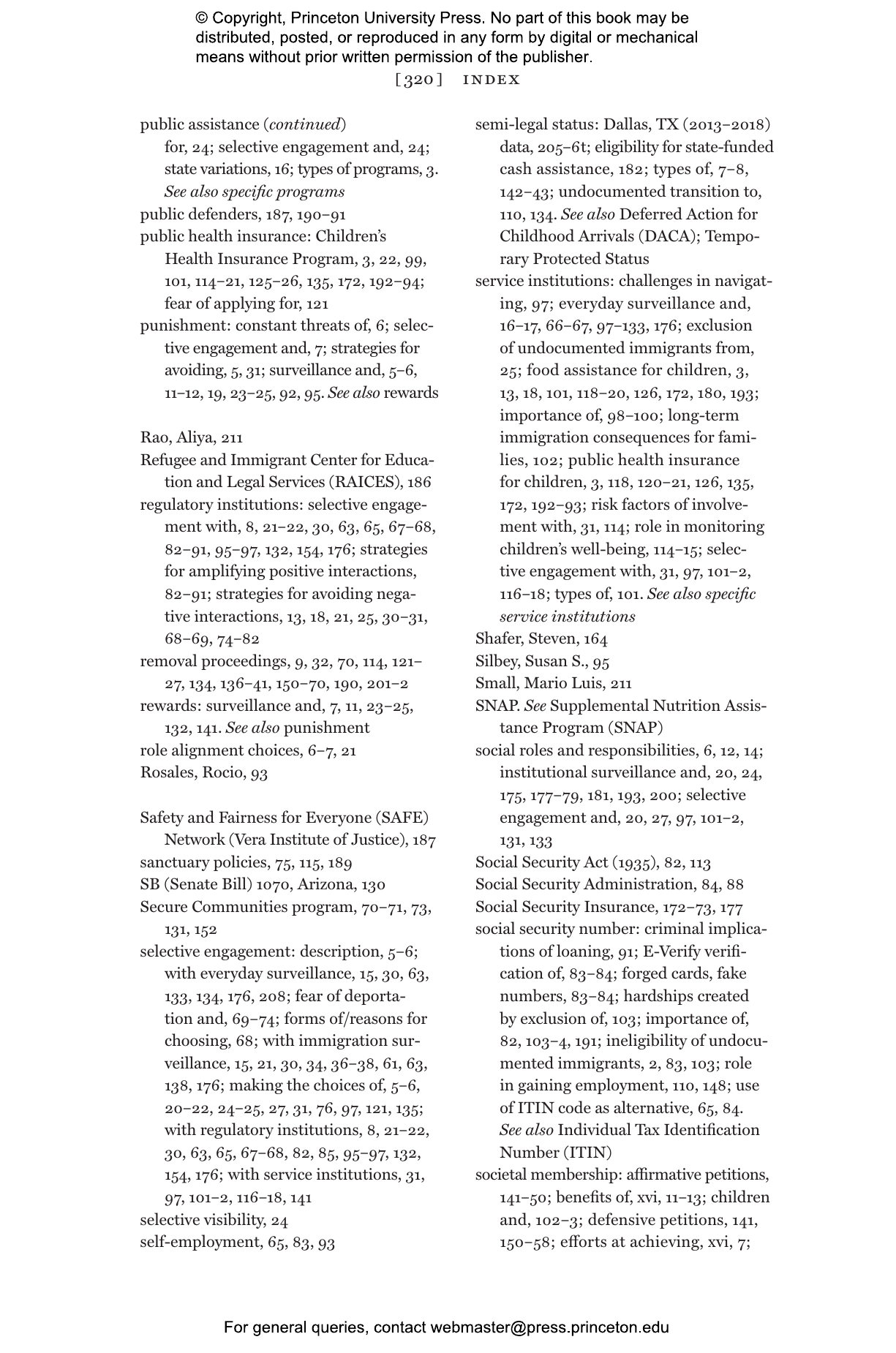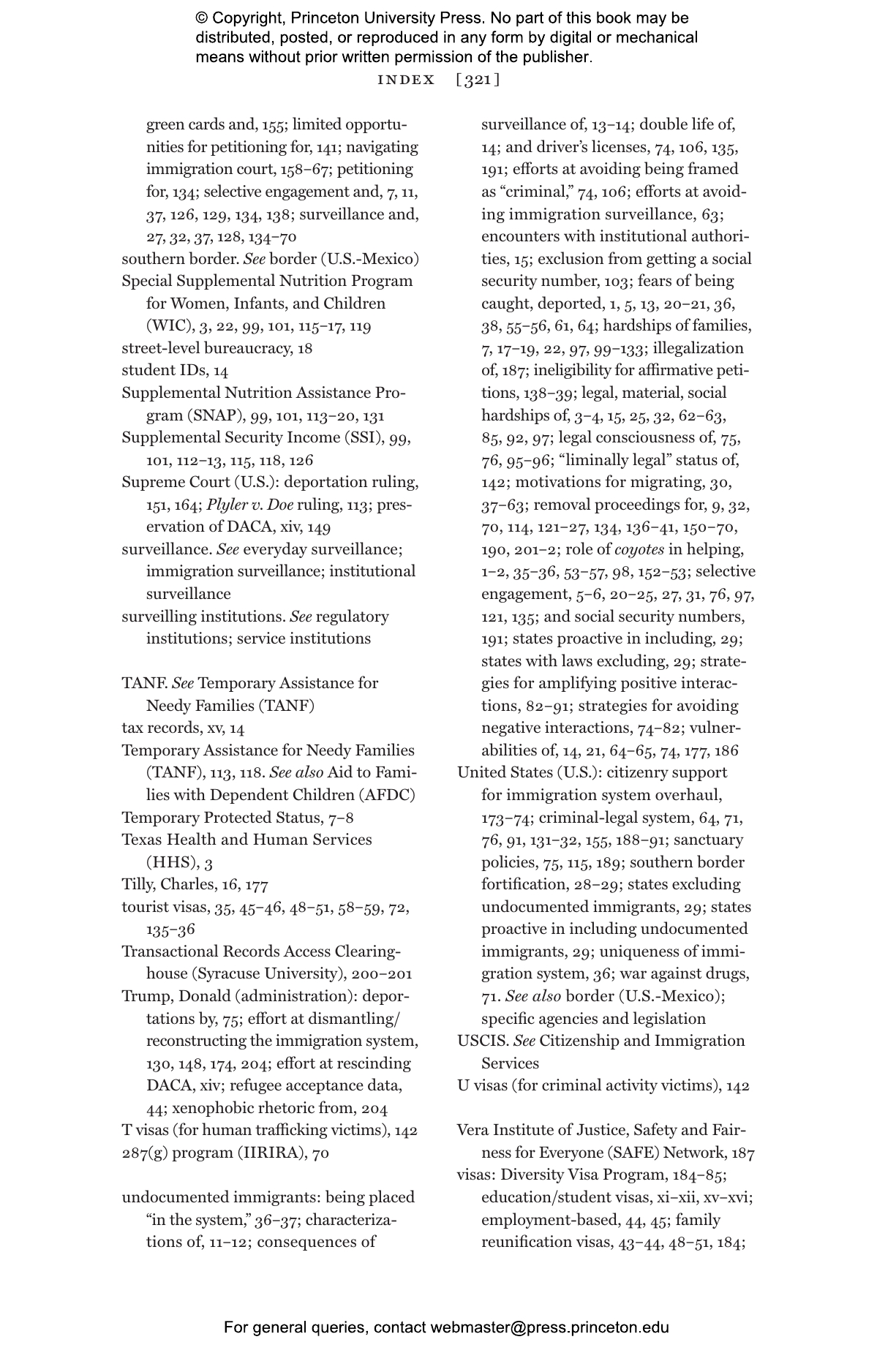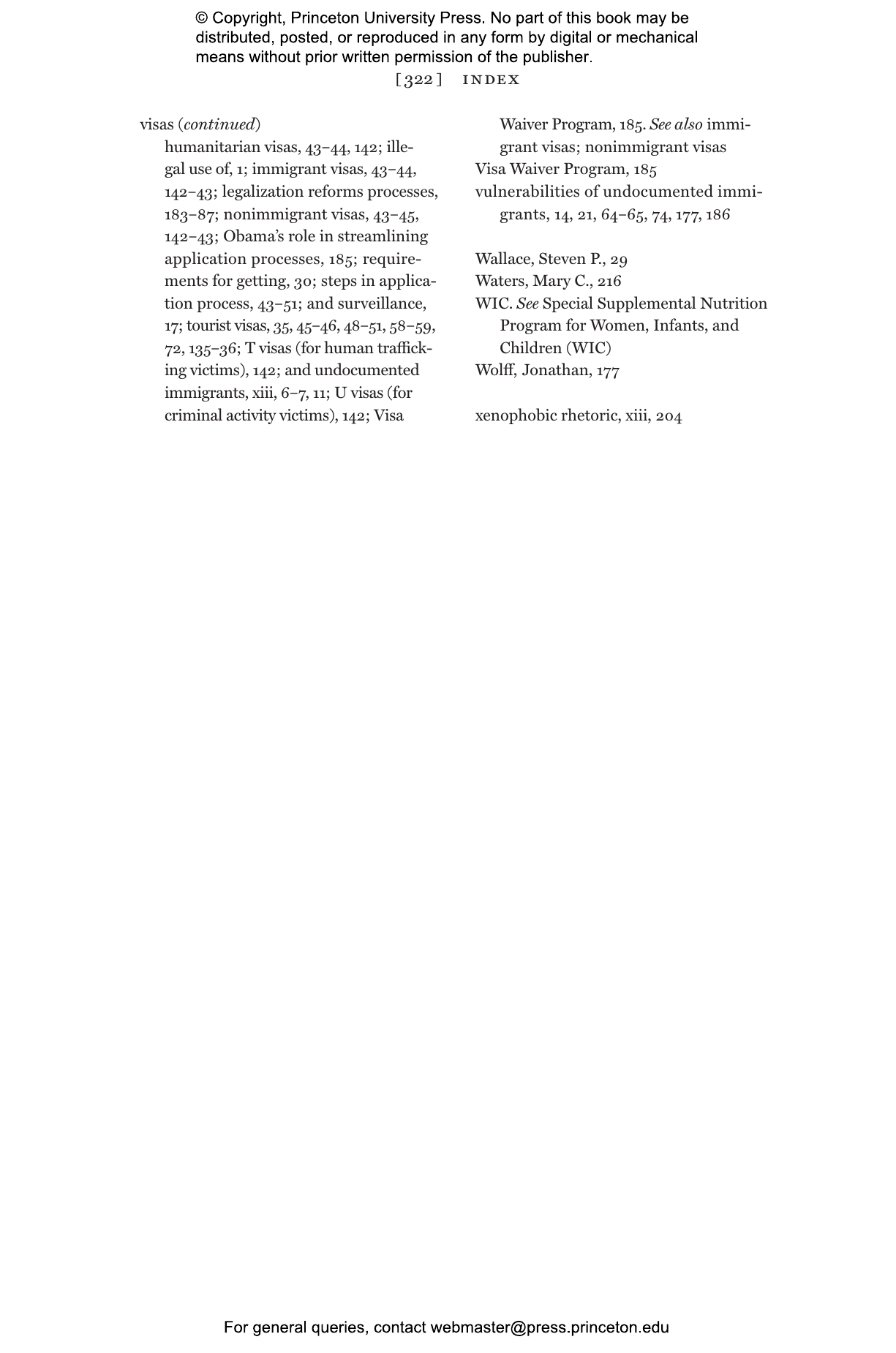Some eleven million undocumented immigrants reside in the United States, carving out lives amid a growing web of surveillance that threatens their and their families’ societal presence. Engage and Evade examines how undocumented immigrants navigate complex dynamics of surveillance and punishment, providing an extraordinary portrait of fear and hope on the margins.
Asad L. Asad brings together a wealth of research, from intimate interviews and detailed surveys with Latino immigrants and their families to up-close observations of immigration officials, to offer a rare perspective on the surveillance that undocumented immigrants encounter daily. He describes how and why these immigrants engage with various institutions—for example, by registering with the IRS or enrolling their kids in public health insurance programs—that the government can use to monitor them. This institutional surveillance feels both necessary and coercive, with undocumented immigrants worrying that evasion will give the government cause to deport them. Even so, they hope their record of engagement will one day help them prove to immigration officials that they deserve societal membership. Asad uncovers how these efforts do not always meet immigration officials’ high expectations, and how surveillance is as much about the threat of exclusion as the promise of inclusion.
Calling attention to the fraught lives of undocumented immigrants and their families, this superbly written and compassionately argued book proposes wide-ranging, actionable reforms to achieve societal inclusion for all.
Awards and Recognition
- Winner of the C. Wright Mills Award, Society for the Study of Social Problems
- Winner of the Edwin H. Sutherland Book Award, Law and Society Division of the Society for the Study of Social Problems
- Winner of the Best Book Award, Latino/a Section of the American Sociological Association
- Winner of the Robert J. Bursik Junior Scholar Award, American Society of Criminology
- Honorable Mention for the Herbert Jacob Book Prize, Law and Society Association
- Honorable Mention for the Otis Dudley Duncan Book Award, Population Section of the American Sociological Association
- Finalist for the C. Wright Mills Award, Society for the Study of Social Problems
- Honorable Mention for the Thomas and Znaniecki Book Award, International Migration Section of the American Sociological Association
- Honorable Mention for the Charles Taylor Book Award, Interpretive Methodologies and Methods Section of the American Political Science Association
- Finalist for the Foreword INDIES, Political and Social Sciences Category
- Winner of the Victor Villaseñor Best Latino Focused Nonfiction Book Award Bronze Medal, International Latino Book Awards
- Winner of the Raúl Yzaguirre Best Political/Current Affairs Book Bronze Medal, International Latino Book Awards
"A provocative intervention that challenges the popular and scholarly understandings of institutional surveillance on undocumented immigrants. . . . valuable, nuanced, and insightful. . . . This important book will surely support the societal inclusion of undocumented immigrants by illuminating and interfering in the inequalities of laws and policies."—Oscar R. Cornejo Casares, Law & Society Review
"Engage and Evade is an interdisciplinary study at the intersection of sociology, political science and law, which makes a significant contribution to the fields of migration and surveillance studies."—P. Arun, International Migration Review
"Engage and Evade, a thought-provoking study of how undocumented immigrants contend with surveillance, sheds light on why the vast majority of undocumented immigrants follow the law: they were also law-abiding in their home countries and now seek social inclusion in the United States, where they are making a life for their families. . . . Engage and Evade is sociology at its finest."—Richard Mora, Sociology of Race and Ethnicity
"Asad challenges the conventional notion that undocumented immigrants in the United States hide in the shadows, fearful of all forms of institutional authority. Rather, he persuasively argues, many engage selectively and rationally with both law enforcement and service institutions such as schools, hospitals and health clinics, and organizations that provide social assistance."—Richard Feinberg, Foreign Affairs
"[A]dmirable is Asad’s intimate familiarity with the narratives, sentiments, and aspirations Latino immigrants express as they make [a] life in the United States"—Aaron Arredondo, Ethnic and Racial Studies
"Beyond portraying immigrants in the workplace as workers or households as parents alone, Asad explores what it means to be wholly human . . . In [Engage and Evade], it is beautiful to see immigrants subjectivities centralized in the analysis of their everyday decisions and behaviors related to institutional interactions. . . . [A] must-read."—Stephanie Canizales, Social Forces
"Engage and Evade is a beautifully written study . . . [and] an incredible contribution to scholarship on immigration and surveillance as it provides the nuance and complexity of the ways people who live in fear of surveillance are forced to navigate it."—Saher Selod, Contemporary Sociology
"[Engage and Evade’s] account of the US immigration policies and structure helps to place the intricacies of the US immigration policies in a more historical, cultural, political and social context that gives us a better opportunity to question our common knowledge of the interactions between migrants and the system."—Meghan Geist, Migration & Development
"A comprehensive framework. . . . [Asad] tells a convincing, important, and desire-centered story . . . of how these immigrants balance their often-conflicting identities as undocumented immigrants, workers, and parents."—Emma M. Lezberg, Sociological Forum
“Masterful and compelling. This informative book will not only invoke anger at the unjust policies targeting immigrant communities, it will move you to speak up. Blending brilliant research with personal testimony from Latino families, Asad has given a gift to the immigrant rights movement and beyond.”—Linda Sarsour, cofounder of Women’s March and MPower Change
“Engage and Evade offers a definitive microsociology of undocumented life in the United States, expertly detailing the complex ballet of institutional engagement and evasion that undocumented parents must undertake in response to the mixed signals emanating from America’s surveillance state to ensure a viable future for their US-born citizen children.”—Douglas S. Massey, Princeton University
“Engage and Evade blends meticulous research, a keen sociological eye, and engaging writing to reveal how immigrant families perceive their myriad routine yet complex interactions with the institutions that surveil them. A splendid work of scholarship, this invaluable book shows us how to see state institutions as immigrants do.”—Cecilia Menjívar, University of California, Los Angeles
“A remarkable contribution to the study of contemporary migration, Engage and Evade shows how difficult it is for today’s migrants to experience membership when the very institutions that aid in assisting and integrating newcomers are also part of a complex web of surveillance and punishment. Theoretically nuanced and compellingly argued, this important book sheds new light on one of the most vexing issues in immigration studies today. A must-read.”—Roberto G. Gonzales, author of Lives in Limbo: Undocumented and Coming of Age in America
“Engage and Evade is a terrific book that shows how undocumented immigrants carefully consider their many interactions with the authorities who surveil them each day. With clear and accessible writing, Asad beautifully illustrates the competing ambiguities and pressures of life as an undocumented immigrant striving to belong in the United States.”—Amada Armenta, author of Protect, Serve, and Deport: The Rise of Policing as Immigration Enforcement
“Engage and Evade is a captivating sociological study that explodes the myth that unauthorized immigrants live in the shadows. Asad’s research deftly examines the ways in which those without formal immigration status nevertheless participate extensively in their communities, selectively engaging with authorities to build a better life here.”—Aaron Reichlin-Melnick, policy director at the American Immigration Council
